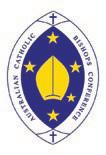PR AYER FUL L Y RAYERFULLY EXPECT ING XPECTING
A Nine Month Novena for Mothers-To-Be
SYLVIA DEFENDI reviews
Blessed are the Meek: ARCHBISHOP BARRY HICKEY continues his reflections on the most important sermon ever delivered - the Beatitudes Vista 3




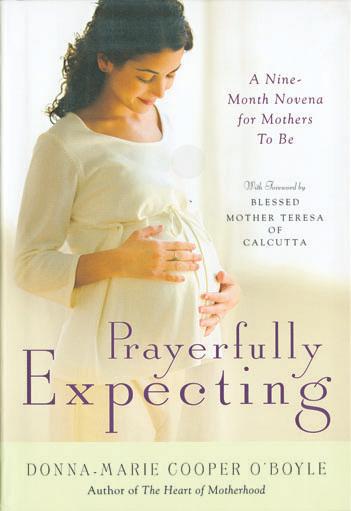








A Nine Month Novena for Mothers-To-Be
SYLVIA DEFENDI reviews
Blessed are the Meek: ARCHBISHOP BARRY HICKEY continues his reflections on the most important sermon ever delivered - the Beatitudes Vista 3












NSW-ACT bishops act to forge more authentic Catholic education system inspired by John Paul II’s call for a New Evangelisation
■ By Peter RosengrenIn an unprecedented development in recent decades, all the bishops of New South Wales and the ACT have said the time has come to reform Catholic schools in all their dioceses.
Young people in Catholic schools in their care “deserve no less than the fullness of “the faith that comes to us from the apostles”,” they said, quoting the First Eucharistic Prayer of the Mass.
They issued a 28-page pastoral letter on Tuesday this week revealing the two options they had considered: divesting themselves of many schools, so that those which remain could focus on accommodating the minority of families who are practising Catholics, or attempting a long-term reform of the existing education system.
The bishops said they had decided for the second option and set out their plans, including criteria, for the future.
They challenged all those involved to dedicate themselves to ensuring that Catholic schools in NSW and the ACT: ● are truly Catholic in their identity and life
Continued - Page 6
Summary: how the bishops aim to do it - Page 6-7
Comment: Can they succeed? - Page 7

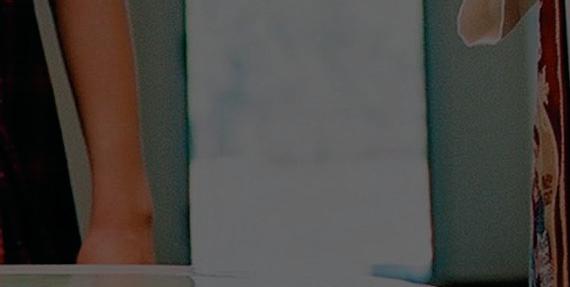

A hundred dollars in cash is up for grabs for the person who comes up with the best logo for Perth’s premier Catholic youth event ‘Days in the Dioceses’.
Days in the Dioceses will occur the week prior to World Youth Day 2008.
The logo must include the text ‘Perth Days in the Dioceses WYD 08’.
Entries, with a form detailing your name, age, home
address, phone number, email address and parish must be emailed with an accompanying entry form to wydperth@highgate-perthcatholic.org.au by 5pm August 31, 2007. For further details and entry forms please email the Perth WYD office or call 9422 7944.
Meanwhile, domestic flights to Sydney for World Youth Day will become available on August 15, the Feast of the Assumption.
Prominent Australian Jesuit Frank Brennan (pictured) will speak at the University of Notre Dame this coming Monday August 13.
Forward in hope: a page from the pastoral letter issued by the bishops of NSW and the ACT. The bishops acknowledge the outstanding contribution of Catholic schools but are looking to improve Catholic education to meet the challenges of life in the 21st century, including an increasing lack of identification from young people with the Church.

mix of law and religion: lessons from the stem cell debates.”

Fr Brennan will speak on the subject of the lessons to be learned from the recent stem cell debates in legislatures around Australia.
The title of his talk is “The
The talk is being presented by UNDAs Law School; Fr Brennan is the Professor of Human Rights and Social Justice at the university. The talk will commence at 5pm in Foley Hall ND1, located in Mouat Street, Fremantle.

A Columban advocacy centre in Sydney has warned against a threat to Australians from genetically modified foods. The Columban Centre for Peace, Ecology and Justice says the state governments of South Australia, Victoria and NSW are considering whether to remove or extend their bans on genetically modified food crops, which, claims the centre, affect biodiversity and alter the food chain. “The interests of a few with much power who are seeking greater profits are being put ahead of the common good of all Australians and our environment,” the Columban centre says.
A Victorian bishop blasted the Federal Government for negotiating a treaty with Indonesian authorities, who are the “oppressors of West Papua.” Bishop Hilton Deakin said the Lombok Treaty is claimed to be the right decision for the people of West Papua, but he holds a different view, and “so should everyone of good will.” Speaking at the inaugural Asmat Mass for West Papua, Bishop Deakin said that rapes, bashings, a lack of due legal process, murders, the suppression of indigenous culture and the imposition of a foreign culture are all being forced on West Papua today.
An Australian author now working with the USbased Acton Institute – a free market think-tank founded by Jesuit priest Fr Robert Sirico – says that the bishops should not listen to Catholic bureaucrats who are concerned about the operations of the free market, because these bureaucrats are out of touch with contemporary economic thinking. “What you get from the bishops is a soft-left approach characterised by ignorance of basic economics,” says Dr Samuel Gregg, co-author of the new book Catholic Social Teaching and the Market Economy, distributed by Connor Court Publishing.
...areyoucalledtotheBenedictinelifeofdivine praiseandeucharisticprayerfortheChurch?
Contact the: Rev Mother Cyril, OSB, Tyburn Priory, 325 Garfield Road, Riverstone, NSW 2765 www.tyburnconvent.org.uk
With a major celebration organised by oldboys to thank the Christian Brothers for their efforts over generations looming on August 26, The Record reproduces an excerpt from the forthcoming book on the brothers by Tony Curtis. Strive Manfully - A History of CBC Perth & Trinity College 1894 – 2003, will be launched at Trinity College on September 16.
In November 1886 there occurred an event that was to prove highly significant for the Catholic community of the Swan River Colony. This was the appointment of Matthew Gibney as the fourth Bishop of the Catholic Diocese of Perth. He was consecrated two months later on 23 January 1887.
Gibney had arrived at the Swan River Colony from Ireland at the end of 1863 shortly after he was ordained a priest and had made a lasting impression on the people of Perth.
One story that relates to Gibney as a young priest followed an event on 23 April 1879 when the Catholic orphanage for boys in Subiaco was struck by lightning.
Tragically, one of the boys was killed and the building was extensively damaged. Fundraising in the Swan River

Colony proved insufficient for repairs and the young Fr Gibney was asked to travel to the eastern states to raise funds. On the morning of 28 June 1880, when he was travelling by train through the Victorian town of Glenrowan, the travellers heard gunshots. Gibney left the train to render assistance.
He came upon a wounded Ned Kelly, heard his confession and gave him the Last Rites. Although the police advised against it, Gibney entered the burning hotel where other members of the Kelly gang were
The Chief Justice of Western Australia, Wayne Martin, and the Governor of the State, Dr Ken Michael, will be among those attending the major celebration to thank the Christian Brothers at Burswood on August 26.
Other notables such as federal MP for Perth, Stephen Smith, and Michael Chaney, the chairman of the Business Council of Australia, will also be there.
The event has been organised by oldboys of Christian Brothers schools in WA to thank the congregation for the remarkable difference they made in the lives of thousands of Western Australian boys via their schools. The Brothers are one of the small number of religious orders or congregations who have had a huge impact on the development of WA through their dedication to providing Catholic education.
However event organiser Michael Perrott urged those who wish to attend to register soon as they will be unable to attend without tickets. The response so far has been wonderful, he added.
The event has been called “Edmund Rice… a man for our times… the story continues” and will be a major celebration of the unique and distinct contribution the Brothers made to education, and an opportunity for their former students to thank them for the difference they made. A new book on CBC College Perth and Trinity College from 1893 to 2004 by Tony Curtis will be launched at Trinity College on September 16. Tickets can be booked by contacting Michael Perrott on (08) 9474 1799, or Maureen Colgan on (08) 9317 1009.
CATEMACO, Mexico (CNS)


- From across the nation and beyond, visitors come to this picturesque, lagoonside town in southern Mexico, seeking money, love, health and revenge. To make these wishes come true, they seek out the area’s famous “brujos,” as they are called in Spanish. For a fee, these shamans and healers perform rituals and call on spirits from the netherworld to influence their clients’ fate. Thanks to this bustling trade in mysticism, Catemaco is Mexico’s unofficial capital of all things occult. It also presents a unique
challenge for and competition to the Catholic Church. For decades, the church has waged a campaign against “brujeria,” or witchcraft, in Veracruz, a state along the Gulf of Mexico. In recent years the church has issued declarations and even put a cross on the top of White Monkey Peak, a nearby hilltop used by shamans as a ceremonial centre. “People want to resolve their problems with the snap of a finger,” said Father Tomas Alonso Martinez of St John the Baptist Parish in Catemaco. The witches “use psychology with the power of suggestion, which they use very well, to make their clients feel good for a little bit.”
holed up. There he found two dead and a third was administered the Last Rites before he also died. The badly injured Ned Kelly was arrested and subsequently tried, convicted and executed.
When Gibney later succeeded the ascetic Martin Griver as Bishop, he was faced with a problem shared by all the Catholic bishops in Australia at the time: how to provide an education that supported the faith of Catholic families when the thrust of government was for an education that was free, compulsory and secular.
For Gibney establishing a Catholic school for boys in the colony was a challenging task. He had no trained teachers, the cost of building schools was high and most of the Catholic population was poor. The fact that most were also Irish did not make the task any easier.
The path to establishing a boys’ school successfully lay in his being able to obtain the services of one of the teaching Congregations of men. Gibney decided to request the assistance of the Christian Brothers.
This decision was based on the reputation of the Brothers as one of the most successful of the teaching Congregations to come to Australia in the second half of the 19th century when they went about their task of educating boys in a very down-toearth manner. The man Gibney turned to in 1893 was the Provincial of the Christian Brothers in Australia Br P A (Ambrose) Treacy.
Gibney travelled to Adelaide to meet with Treacy with a request that Treacy send a number of Brothers to teach in Perth. Gibney had in mind that the Brothers would take over an already existing parish primary school – St Patrick’s Boys School in Irwin Street (St Pat’s) – adjoining the Perth Fire Station. St Pat’s had been established sixteen years previously, the foundation stone having been laid in March 1878…
At first Treacy was reluctant to send Brothers to teach at St Pat’s. But he finally agreed on the proviso that he also be allowed to establish a primary and secondary school for boys on a property owned by the bishop on the corner of St Georges and Adelaide Terraces Perth, bordering the government domain.
The meeting then resulted in a resolve to establish two Catholic schools for boys in Perth to be run in parallel by the Christian Brothers: St Pat’s in Irwin Street was to be a low-fee primary school and Christian Brothers College, St Georges Terrace (CBC Perth) was to be a higher-fee primary and secondary school for boys.
NSW Premier Morris Iemma has offered a $500,000 grant as an incentive for the first science team to produce stem cells from cloned human embryos.
The cloning process, recently legalised in NSW and Victoria, involves creating human embryos which are then killed for their stem cells.
“This funding will enable NSW scientists to undertake work we hope will result in the creation of the country’s first stem cell lines derived from somatic cell nuclear transfer embryos,” Premier Iemma said.
The NSW move suggests an
impending race between states to cash in on embryo research.
Christians ‘were safer under Saddam’
VATICAN CITY (CNS) - Iraqi Christians were safer and had more protection under Saddam Hussein, said Cardinal Jean-Louis Tauran in an interview with the Italian magazine 30 Giorni. He said an “unjust approach” was used to unseat Saddam from power, resulting in the mounting chaos in Iraq today. “...The country is sinking into a sectarian civil war,” he said (between Sunni and Shiite Muslims) in which not even Christians are spared.”
With a federal election looming by November at the latest, Australia’s Catholic bishops have enunciated what they see as the key principles that should inform voters when they go to the ballot box. Record National Affairs editor PAUL GRAY has analysed their agenda

The Australian bishops have released a pre-election statement reflecting on the key issues voters should bear in mind when choosing their next Federal government.
Life issues and the family receive the most prominent treatment in the bishops’ statement.
In a clear reference to the WorkChoices debate, the bishops urge “fair compensation for the working of unsociable and un-family friendly hours.”
The bishops’ statement is timed to coincide with this week’s opening of the final sitting term of the current Federal parliament.
The bishops say their contribution to the political discussion is based on two foundations – the Church’s rich religious tradition, and her long experience as a major provider of health care, education and social services in Australia.
Other key issues to which the bishops draw attention in their pre-election statement are the needs of indigenous Australians, education and health, the environment, immigration and refugees and peace.
In a preface to the statement, the bishops emphasise that the common good relies on the promotion and protection of human dignity.
They urge Catholic voters to look “beyond their own individual needs and apply a different test at the ballot box – the test of the common good.”


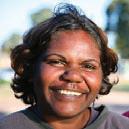
Abortion is not likely to be a Federal election issue, yet the bishops highlight the central importance to the Church of the sanctity of all human life. By making ‘life’ the first issue of consideration for Catholic voters, the bishops emphasise that opposition to euthanasia and the stem cell issue should be in the minds of Catholics at election time.
Recent government-sponsored television advertisements about workplace legislation have highlighted the extreme political senstitivity of the issue of workplace rights. This makes the bishops’ warning about compensation for “un-family friendly” hours striking. The bishops urge both main parties to remember that marriage and families, not employers’ rights, are the nation’s greatest asset.
Politically invisible at election times, Aboriginal Australians are deserving of a

We can only change ourselves
In marriage as in any relationship we only really have power over our own attitude. In the intense environment of a marriage we can easily find ourselves pointing the finger of blame when we are upset and emotional. It is always worth asking ourselves: “How am I contributing to this situation?”
prominent place in the attention of Catholics, the bishops argue.
Contentiously enough, the bishops say that Aboriginal leaders should have a say in “the process of government.”
This could be read as a cannon across the bows of a Government which has dismantled the chief organ of Aboriginal self-government, ATSIC, and has made welfare policy, not indigenous representation, the hallmark of its Aboriginal policy.
Here the bishops emphasise the importance of diversity in education. The value and beliefs of every Australian family, including Catholic ones, should be reflected in the freedom families have to choose a type of schooling for their children, they say.
Drawing attention to another marginalized group which has been traditionally invisible at election times, the bishops highlight the suffering of the mentally ill as one of our country’s pressing concerns. As well as the need to provide good basic health care, and dental and aged care for all Australians, the bishops note how the drug culture is having a negative impact on human lives.
Are we a Green Church? The bishops argue for solidarity with those adversely affected by drought, and for support and counseling for those who need it. But at the cause-and-effect level, the bishops are also pointing to global warming, land degradation and a tradition of poor land use in Australia as issues to be addressed.
The bishops insist that asylum-seekers who are found to be genuine refugees must be given permanent visas and government entitlements. They emphasise that the present unprecedented level of people movement across the globe is not about to fall. And despite the government’s moves to have refugee applications by boat people processed on Pacific Island countries like Nauru, the bishops say all asylum-seekers should have their claims processed in Australia.
Are the bishops warning against excessive zeal in the war against terror, and perhaps the Iraq war? They say it is not God’s way

Join Pope Benedict XVI in prayer - August
to “oppose violence with greater violence.” While praying for Australia’s defence service personnel, the bishops also highlight the importance of overseas aid policies as a way of building a culture of peace.



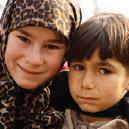


I’m John Hughes, WA’s most
Is it true our company philosophy is “We are a friendly and efficient company trading with integrity and determined to give our customers the very best of service?”
Is it true I regularly publish testimonial letters from satisfied customers because of my tremendous reputation for outstanding service?
Is it true I believe that before anyone buys a pre-owned vehicle they should choose their dealer before they choose their car and that dealer should be mine? and...
General intention: Those suffering in turmoil - That those who are suffering with inner difficulties and trials may find in Christ the light and support that leads to authentic happiness.
Mission intention: Church in China That the Church in China may grow in unity and in visible communion with the Pope.

Is it true I say this, because of my reputation for honesty, fair dealing, huge range of vehicles and non pushy salespeople.
Is it true when people do business with me, I guarantee they will be treated with courtesy, sincerity, professionalism and efficiency?
Is it true that I have over 40 technicians who are dedicated to getting my used cars in first
condition before sale?
Fr Nikola Cabraja, chaplain to the Croatian Catholic Community, had his long awaited dream realised on July 29 with the unveiling of the new statue of St Anne, the mother of Mary, in North Fremantle.
Fr Cabraja had waited for over 30 years to have the monument to the mother of the Virgin Mary exposed in the Croatian Church.
Sculpted from prized Croatian white marble by Croatian artist, Pero Jaksic, the three tonne statue was unveiled in front of over 800 parishioners as Archbishop Barry Hickey celebrated a thanksgiving Mass.
The statue arrived alongside its 10 tonne sculpted altar at Fremantle’s port on July 12 and was lowered into the church through the roof. Generosity was at the core of the
project as quarry owners on the Croatian island of Brac offered the highly regarded marble free-ofcharge and members of the Croatian Catholic Community raised over $65,000 in a year to pay for the artist’s work.
Fr Cabraja said he was especially taken by the community’s generosity.
He said the community was able to raise enough funds to pay for artist Jaksic’s trip to Perth for the unveiling.
And much to the delight of the congregation, the youngest ‘Anne’ of the Croatian Community was assisted by her father and Mr Jaksic, in drawing the white cloth that had kept the statue hidden until only recently.
The statue can be viewed at St Anne’s Croatian Church on Stirling Highway in North Fremantle.

On June 24, 1863, a small band of Good Shepherd Sisters disembarked at Melbourne. They were the nucleus of a Province that would later grow and spread throughout the Australian continent and establish communities in almost every State and work for the disadvantaged from Broome to Melbourne, from Brisbane to Perth.
So it was that on June 24, 2007, the celebration of Good Shepherd Day that recalled that arrival 145 years ago, brought together many Sisters, staff, former residents, teachers and friends, organised by the Good Shepherd Associates.
Jesuit Father John Harte and Pallotine Father Michael McMahon concelebrated Mass in the former Good Shepherd Chapel of St Michael the Archangel, in Leederville. After the sacrifice of the Eucharist, the guests adjourned to the adjacent staff room of the Catholic Education Office, where one Sister commented how heartened she was at the sight of so many past associates reuniting.
Later, most guests visited the display of goods set out by the Trading Circle, the sale of which enables women and girls in third world countries, to carry out activities in their own region to improve their way of life.

out the
A lifetime of tradition passed from father to son helps you to put your trust in the service, understanding and gentle compassion of an Oakwood Funeral.
Speak to Julian or his father Don, to arrange a funeral or discuss your pre-paid options.

New Marriage Encounter Presenting Couple, Simon and Jacqui Anthony, were commissioned at the Greenwood parish by Fr Vincent Conroy and Archdiocesan Director of Marriage Education Services Derek Boylen, on July 1 at the 9am Parish Mass.
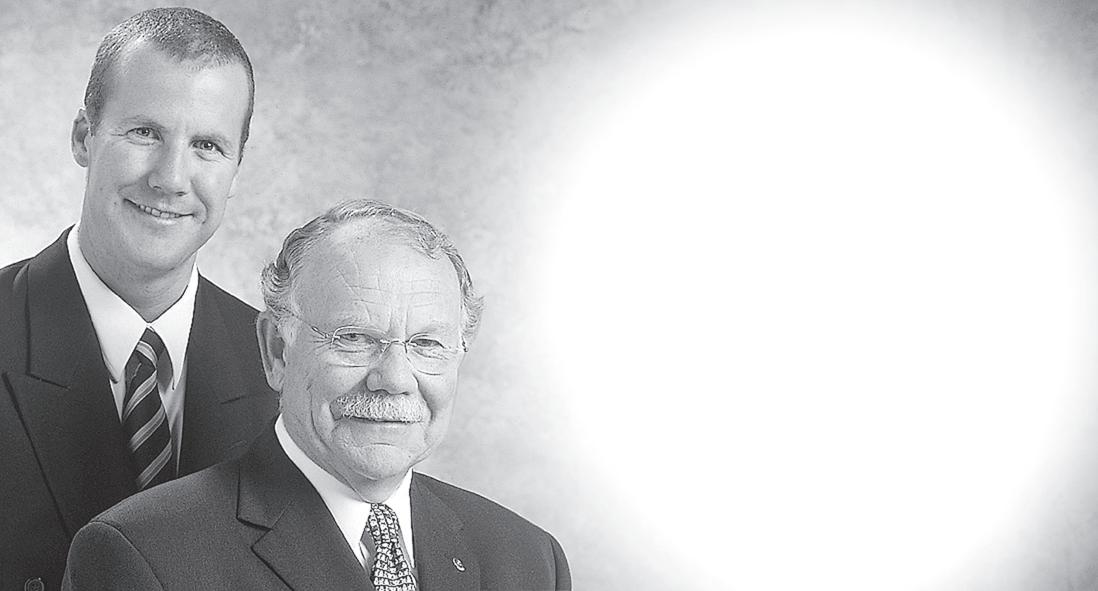
Joseph Cordina, a teacher at Emmanuel Catholic College and State coordinator of Catholic Marriage Encounter, reported that the Sunday’s readings on discipleship were “very appropriate” for the commissioning of Simon and Jacqui Anthony, in that they have been called by God to serve couples who are married, to encourage them through their witness and talks to live lives that reflect the unconditional love of God.
Fr Vincent emphasised that this call to discipleship requires us to be resolute in our actions to promote the Kingdom of God and not get distracted by other demands in our life.
Simon and Jacqui have a young family of four children under the age of seven and Mr Cordina said that he believes them to be resolute in their love, discipline and bringing up their children in their faith.
“They are very much committed to their faith and their love for each other,” Mr Cordina said.
“They answered the call to ministering for marriage encounter after their weekend in October last year, then attended a training weekend in Sydney with seven other couples from around Australia in May this year.
“Their enthusiasm and vitality for the Marriage Encounter lifestyle is an inspiration for the community.”
The St John of God Sisters have touched the lives of thousands of people over the years, and over 1000 people proved it by attending a Mass to celebrate 100 years of their presence in the Kimberley.
On June 16, Bishop Christopher Saunders concelebrated Mass with a large contingent of clergy, and sitting in the congregation was SJOG Congregational leader from Wexford, Ireland, Sr Mary Rowsome, Australian Provincial leader Sr Isabel Moran; the Vicar General of the Diocese of Ferns, Wexford and Sr Joan Walker, also from Wexford – the latter two relatives of another Sr Joan Walker, who was among the pioneer group of Sisters who arrived in Beagle Bay in June 1907.
Also present were local relatives of the two Greene Sisters of the aforementioned pioneer group.
The Mass was preceded by a smoking purification ceremony and a ‘welcome to country’ ceremony by Aboriginal elder Cissy Djagween. Flags of the various nationalities ministered to by the Sisters were colourfully displayed and the evening Eucharist had in all a thanksgiving and joyful atmosphere, according to those present.The Sisters of St John of God’s history in the region is rich and, considering the earliest pioneering Sisters wore their full habit in the notorious, debilitating hot weather, they were nothing short of heroes.
Their history began at Beagle Bay, the site of the centenary Mass.
The town got its name from the exploration ship ‘Beagle’ that visited the area on January 24, 1838, captained by John Clements Wickham and, reportedly, the famous ‘naturalist’ Charles Darwin was a crewmember. After some preliminary missionary efforts by the Scottish-born priest Fr Duncan McNabb, a Catholic mission was established there under the auspices of Trappist Monks in 1892.
But by 1900 they realised life in the Kimberley wasn’t exactly compatible with their Monastic Observance and pulled out.
Meanwhile, the newly appointed Bishop William Kelly of Geraldton, while in Rome, was able to interest the Pallotine Fathers in the now-
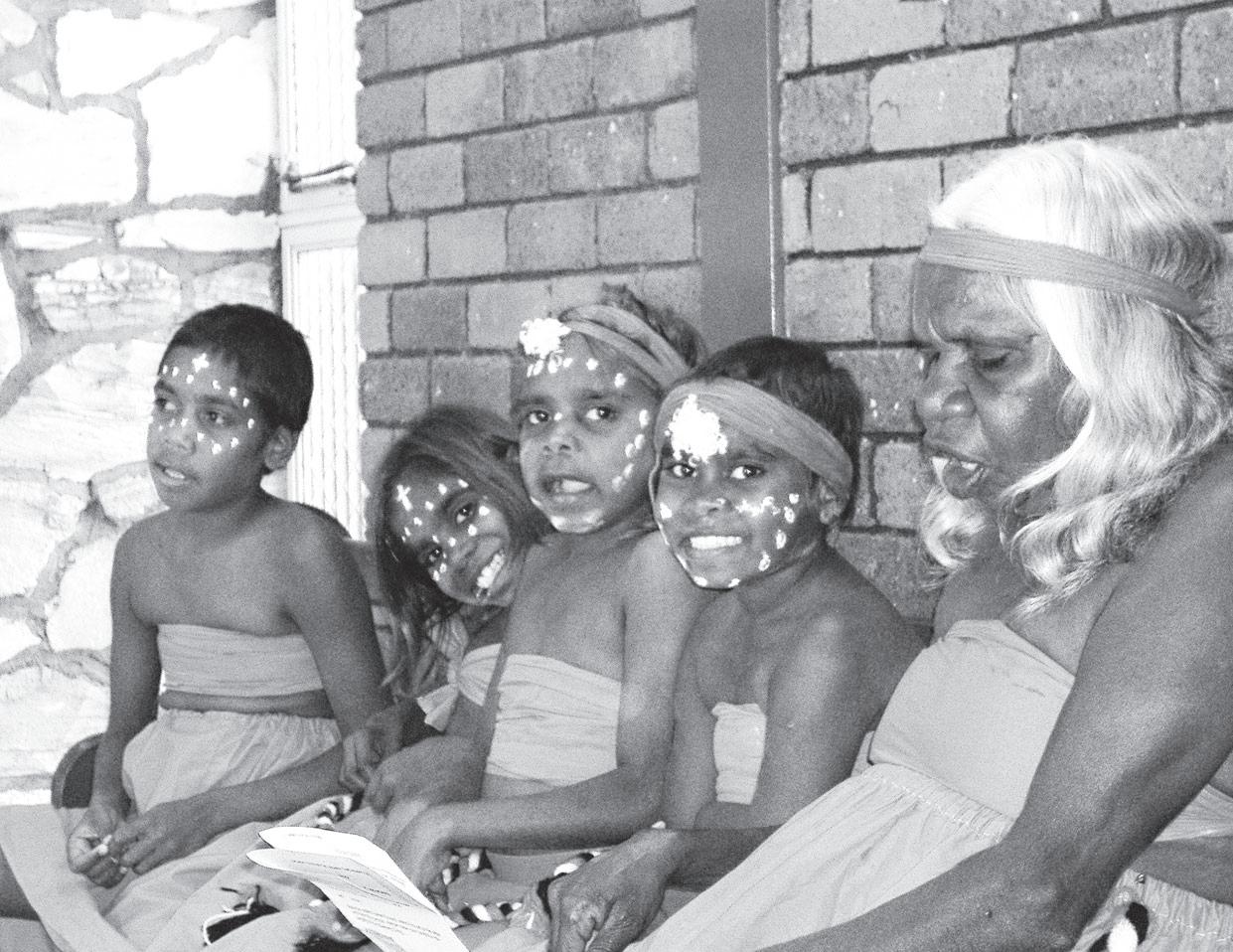
abandoned mission and with the personal support of Perth Bishop Matthew Gibney, the mission was revived in 1901.
Bishop Gibney was convinced that female religious would enhance the Church’s impact on the Aborigines, especially with women and children, in and around Beagle Bay. In 1906, enlivened by Federation, the first involvement of Australian fighting men overseas in the South African Boer War and rich finds of gold in Kalgoorlie, it was becoming a more sophisticated place. Bishop Gibney appealed to the SJOG Sisters Provincial Council in Ireland but was refused due to other commitments, but was told that if he could enlist volunteers they could come. The Bishop had already experienced the Sisters’ good work in the Goldfields and he appealed to Mother Antonio O’Brien who had ministered there but was now in Ireland recruiting postulants for WA.

Vatican official says Ugandan thugs must stop forcing children to fight their battles for them
GULU, Uganda (CNS) - Warring thugs must stop forcing children to fight for them, and the international community must make more serious efforts to fund programs to help former child soldiers rejoin civil society, said the president of the Pontifical Council for Justice and Peace.
The blood shed in the so-called forgotten wars of Africa “is just as sacred in the eyes of God as that which flows between the Tigris and the Euphrates” rivers in Iraq, said Italian Cardinal Renato Martino during an August 6 visit to Gulu, the scene of more than 20 years of clashes between government troops and rebels from the Lord’s Resistance Army.
Cardinal Martino also condemned the rebels’ practice of kidnapping children and forcing them to join the rebels in battle. He said an estimated 30,000 children had
been kidnapped. “In 2006 there were 17 major armed conflicts going on in the world, the same number as in 2005,” Cardinal Martino said. The Cardinal called on the international community to make a greater commitment to supporting negotiated settlements of all the wars and to work to prevent other outbreaks of violence.
He said the international community can do this by controlling the sales of weapons, promoting social justice and ensuring that foreign investments do not exacerbate economic inequalities.
Speaking on August 4 in Kampala, Uganda’s capital, the cardinal also called on the international community to ensure that the peace settlements and postwar aid to African countries include greater funding to assist former child-soldiers.
“When a child picks up a weapon, it is against nature,” he said.
“But it is as much a tragedy that so many young people, after fighting with the guerrillas, end up on the streets,” begging or forced into prostitution.
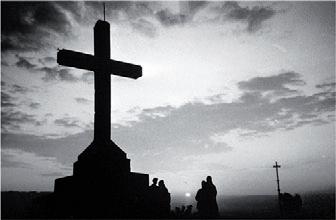


A satellite tracking system developed to keep tabs on dementia patients is being snapped up by British parents worried about the safety of their children.
A child wears a small black box which sends signals that can be followed on a computer at home or at work.
“A lot of people set out for work first in the morning and the child only goes to school afterwards,” says a spokesman for the company that developed the device.
“People also like to use it when their child goes on a school trip.”
LONDON EVENING STANDARD
Lesbians and single women in Britain are increasing their share of donor insemination, accounting for 38 per cent of such treatment last year compared with 28 per cent in 2003 and 18 per cent in 1999.
At present the law requires a child’s need of a father to be considered in fertility treatment, but under a proposed change this would be dropped.
TELEGRAPH
the way to go
Scientists say geothermal energy - clean, quiet and virtually inexhaustible - could fill the world’s annual needs 250,000 times over with nearly zero impact on the climate or the environment.
A study released this year by the Massachusetts Institute of Technology said if 40 percent of the heat under the United States could be tapped, it would meet demand 56,000 times over.
It said an investment of $800 million to $1 billion could produce more than 100 gigawatts of electricity by 2050, equaling the combined output of all 104 nuclear power plants in the US.
ASSOCIATED


Education Reform
“That the bishops published a 28-page document on the issue and distributed thousands of copies of it indicates how seriously they view the situation in Catholic schooling,” writes Peter Rosengren.
Continued from page 1
● are centres of ‘the new evangelisation’ called for by Pope John Paul II in his 1991 encyclical Redemptor Hominis
● enable students to achieve high levels of ‘Catholic religious literacy’ and practice
● are led and staffed by people who will contribute to these goals.
Their pastoral letter, entitled Catholic schools at the Crossroads, signals their public acknowledgement of deep-seated problems that have increasingly plagued Catholic education around Australia for decades and which have been studied in every State.
The fact that the bishops published a 28page document on the issue and distributed thousands of copies indicates how seriously they view the situation in Catholic education and schooling.
The bishops addressed a number of issues that underpin their concerns for Catholic education.
These include teachers with an inadequate knowledge or comprehension of the Catholic faith; the growing numbers of Australian young people who see the Church as irrelevant to their lives; the sharp rise in recent decades in the number of non-practising
Much more is required for a genuinely Catholic school than just a preponderance of students from Catholic families.
It is essential that:
• leaders and staff understand, and are solidly committed to, the Catholic identity of the school
• the Religious Education (RE) curriculum is sound, attractive and professionally taught by teachers with appropriate RE qualifications
• other disciplines also consider the Catholic dimension of their subject areas
• schools are Eucharistic communities within the parish context where, as far as possible, students regularly take part in Mass and Reconciliation
• schools continue to be places of prayer, including prayer at assemblies, in classes and in other staff and student meetings, and places where practices are encouraged such as Scripture reflections, the Angelus, Eucharistic adoration and prayerful silences
• schools are places cultivating a Catholic imagination, where prayer and liturgy are supported by a Catholic visual culture, including crucifixes and pictures of Our Lady and the saints
• schools are connected to their local parishes and diocese, through inviting the periodic presence of the bishop, clergy, religious and parents in the school, and through active collaboration with the wider Catholic community
• families and parishes support their schools in these important endeavours.
Their pastoral letter, entitled Catholic schools at the Crossroads, signals their public acknowledgement of deep-seated problems that have increasingly plagued Catholic education
Catholic families and dysfunctional families; and the corrosive effect on the young caused by the contemporary media and cultural values.
Additionally, a massive 20 per cent of students in Catholic schools in the State and the ACT are now from other-than-Catholic families.
Speaking at the public launch of the document at the Mary MacKillop Memorial Chapel at North Sydney on August 7, Bishop David Walker of Broken Bay said that while Catholic schools were originally founded in the 19th and 20th centuries to serve the poor “…today we find that the poor are no longer over-represented in our schools.
Financial stress and other factors press
many Catholic families to look elsewhere.” Other changes are that many young people now have little or no connection with the Church outside their school and the number of other-than-Catholic students enrolling is increasing. The document acknowledged that many Catholic families also leave the system because of the costs of Catholic education for their children.
“Then, there are the society-wide trends such as secularisation, consumerism, family dysfunction and values disorientation that also impact on young people,” Bishop Walker said.
“Schools often have to pick up the pieces.”
The bishops’ statement stressed that students should receive the whole faith,
If Catholic schools are to be centres of the new evangelisation:
• the life and activity in the school would be the context for a personal encounter with Christ and would promote, and never contradict, the teachings of the Church
• all those involved in our schools would appreciate their roles in receiving and proclaiming the Good News by word and deed, and by the example of their lives
• students would participate in RE classes, liturgies, retreats and prayers which are, as far as possible, tailored to their place in the journey of faith, addressing the core of our faith and inviting a response
• special programs would be developed for students who first enter a Catholic school later than Kindergarten (for instance in Year 7) and may not have received much prior religious education
• schools would work with their local parishes to establish programs for initiating children and young adults into the Church
• other efforts would be pursued to integrate the activity of our primary and secondary schools with the life of the surrounding parishes and diocese, so that our young people are given a sense of belonging to a wider Church beyond their family and school
• consideration would be given to the desirability of establishing Catholic preschools, with catechesis appropriate to this crucial stage in faith formation
• every effort would be made to engage our students and young teachers in preparations for, participation in and enrichment after major religious events such as World Youth Day
• families and parishes would back up and support their schools in all these activities.
unobscured by “enthusiasm” for other causes. Quoting Eucharistic Prayer I, they said: “Young people in our schools and their families deserve no less than the fullness of “the faith that comes to us from the apostles”.
“Therefore, enthusiasm for social justice, ecology, the charism of the founder or some particular school initiative must always be situated within the broader context of Catholic faith and morals.
“It must never eclipse the building of a relationship with Jesus Christ and his Church.
“No student should leave our Catholic schools without knowing the essentials of Catholic teaching as found in the Catechism of the Catholic Church and its Compendium, and all catechetical programs and RE texts should build upon these,” they said.
The document goes on to list a number of critical indicators of progress by which changes can be measured in the future.
These include progress towards an increase in the proportion of students in schools who are Catholic, a higher proportion of enrolment from poorer families and greater Mass attendance by families who send their children to Catholic schools.
If Catholic schools are to succeed in passing on the Catholic faith to the next generation:
• schools will have as their goal the formation of Christian disciples, with appropriate world view, character and behaviour
• RE curriculum, methodologies, texts and other resources will be chosen to ensure that by the end of their schooling students know the core teachings of our faith, our Scriptures, history and tradition (‘Catholic religious literacy’) and how these are to be lived in the world
• in particular, students will be brought to a knowledge and, as far as possible, love of the person, life and teachings of Christ and of the Trinitarian God of Love
• students will also be brought to a knowledge and love of the People of God, the Church, who join them in their pilgrimage through life and support them through the Word of God and the Sacraments
• students will be prepared for the challenges to their faith that may come while still at school or after they have left school
• RE classes will therefore be given priority with regard to the school curriculum, time and space allocation and the choice and recognition of staff
• there will be demonstrations of Catholic religious literacy through appropriate assessment and religious activities
• our schools will also seek to involve parents and families in the process of evangelising and catechising their children, seeking in the process also to educate those families in the faith.
4. Tools for the mission
If Catholic schools are to succeed in the mission articulated above it will be essential that:
• all those appointed as Principals, Assistant Principals and Religious Education Coordinators (RECs) are faithful Catholics who are ready to embrace the mission of the Catholic school today and to lead and inspire their staff and parents accordingly
• as far as possible only practising and knowledgeable Catholics are charged with the task of teaching RE in our schools
• all teachers are committed to the mission of the school and teach and live in accordance with the teachings of the Church
• while fully supporting existing leaders and staff in our Catholic schools, we identify and form a new generation of leaders and teachers who are deeply committed to the goals of Catholic education
• vocations to the priesthood, religious life and Christian marriage are actively promoted in our schools
• Catholic tertiary institutions and those providing inservice and other support are thoroughly informed of the identity and mission of the Catholic school and effective in providing our leaders and staff with the knowledge and skills they need.
■ COMMENT:
By Paul GrayA great deal of thought and planning went into the release of the education reform statement from the bishops of NSW and the ACT, including a multicoloured visual presentation highlighting the fact that the letter marks a “crossroads” moment for Catholic schools.
The idea was hammered home. “Catholic Schools at a Crossroads” announced the covering headline on the bishops’ letter.
The document and the deliberate symbolism indicated that the bishops are now committed to reforming the school system. The big question is: how effective can we expect reform to be? Clearly, the Catholic school system in Australia has been failing for decades in its most important central function – teaching the Catholic faith to Catholic youth.
Young Catholics’ ignorance of the Church’s central doctrines regarding the nature of the Church and its sacramental and moral teachings has been exhaustively documented from a variety of sources, in this newspaper and elsewhere.
Revelations like the findings of Dr Luke Saker from Edith Cowan University and the research documented by publisher Michael Gilchrist are only two examples of the serious – even scandalous – lack of knowledge about Church basics that has been allowed to surge, tsunami-style, around the multibillion dollar Catholic school system nationally. Reflecting discussions which have been taking place among Catholic parents and

school-teachers for years, the bishops now say that there appear to be two main ways for the Church’s school system to go. One way is to “downsize” the system to accommodate only those committed to the faith. Churchgoing families, in other words.
The other is to “embrace the changing enrolment patterns” – that is, embrace the large number of students and families who don’t have the remotest interest in the Church – and accept the un-churched population as a new mission field for the Church.
The bishops say that “all” agree that the second option is the right one. This may be the public thinking of all bishops, but it is not the thinking of all Catholic parents on
The bishops said criteria for the reform of Catholic schools might include:
• the Catholic purpose of the school is clearly stated in each school’s Mission Statement
• all Principals, Assistant Principals and RECs are practising Catholics who understand and profess the Catholic faith, model it in their own lives, and can teach it effectively
• progress towards an increase in the proportion of school staff – and especially of RE teachers – who are practising and knowledgeable Catholics
• at application and appointment to a new position, and on other appropriate occasions, leaders and staff are reminded of the Catholic identity and mission of the school and of the expectation that they will commit themselves to that mission
• progress towards an increase in the proportion of students in schools who are Catholic
• at application for enrolment, at admission, and on other appropriate occasions, parents and students are reminded of the Catholic identity and mission of the school and of the expectation that they will assist in that mission
• the presence of distinctively Catholic symbols and practices as part of the daily life of the school
• efforts to connect with Catholic families and to maximise their participation in Catholic schools
• the provision, in conjunction with local parishes and diocese, of programs for students wishing to join the Catholic Church
• continued development and deployment of curriculum, methodologies and resources such as texts which promote high levels of Catholic religious literacy
• co-curricular activities aimed at further evangelising and catechising students and otherwise nourishing their spiritual life (eg retreats, Project Compassion, St Vincent de Paul groups)
• systematic external assessment of Catholic religious literacy
• maximum involvement by students and younger staff in religious events such as World Youth Days
• progress toward significantly increased attendance at Sunday Mass, and deeper involvement in the life of the local Church by students and ex-students
• progress towards an increase in the proportion of students in our schools who are from poorer families.
the topic. Many think that Catholic schools indeed should be dedicated to serving the families of churchgoing Catholics – even if this does mean serving a much smaller population than the schools’ present multidenominational and multi-philosophical demographic.
There is at least an argument to be made that by creating small but vibrant Catholic schools, in which prayer, liturgy and doctrinal instruction were seamlessly interwoven and formed a daily part of the schooling experience of Catholic youth from churchgoing families, the bishops could generate great numbers of shining examples of holiness, evangelisation and vocations within future
generations. However, the bishops, who have the ultimate control of the Catholic school system, clearly do not wish to go down this path. According to this week’s pastoral letter, the bishops say that they “challenge” everyone involved in Catholic schools to dedicate themselves to creating a truly Catholic identity, and to making schools centres of “new evangelisation.”
In particular, the bishops want Catholic schools to be led and staffed by people who will contribute to these goals, and to the goal of achieving higher levels of Catholic religious literacy.
However, even the most casual observer of Catholic educational and ecclesiastical life would note straight away that there is at least one large obstacle to such revolutionary reform being imposed on the Church’s school system.
While CEO leaders in NSW-ACT can be expected to voice support for initiatives like this week’s pastoral letter from the bishops, the intention to actually cede control of Catholic education to people with a substantially different agenda from that which has dominated in Catholic education for such a long time is another matter altogether. The pastoral letter from the NSW and ACT bishops is indeed a significant step. It may even be the crossroads referred to on its front cover. But as with any crossroad, it offers a choice of possible future routes. Dedicated Catholic parents will hope that having journeyed this far, the bishops won’t allow bureaucratic inertia make a sudden U-turn, into a recent past which has been fruitless for the faith in this country.
Mary Retel, deputy director of Catholic Education WA, told The Record that parents with a reference from their parish priest verifying that they are practising Catholics get preference for their children to be admitted to Catholic schools in the State.
She said that on average, 22.8 per cent of children in Catholic schools throughout WA are non-Catholic.
WA is the only State that has a special concession of school fees for low-income families who have children in Catholic schools. Parents with a Means Tested Family Health Care Card only have to pay $140 a year if their child is in primary school, and $880 per year for each secondary school student.
In April this year, Archbishop Barry Hickey announced that Parish Priests in the Archdiocese would take a more active role in religious activities in primary and secondary schools. The new role for Parish Priests had been defined in agreements reached with the Catholic Education Office.
Some of the specific provisions to make the schools accountable to the Parish Priest for their religious activities are:
• The parish priest has the right to be on the RE teacher selection panel.
• The parish priest is to be informed early in the year by the RE Coordinator of the content being taught each year, with a summary given to him.
• The parish priest is to determine, in conjunction with the school authorities, the frequency of school Masses, and the provision of the Sacrament of Penance.
• The parish priest and parish clergy are to be invited to participate personally in the RE program after discussions with the RE Coordinator regarding this involvement.
In another significant step, the Archbishop announced that RE is to be taught by teachers who believe and practise the Catholic Faith and desire to see the faith grow in the students they teach.
The role of the local Bishop and his clergy is to be strengthened to make it more clearly apparent that the units of RE and the faith activities of Catholic schools are sanctioned, endorsed and to some extent prepared by them.
For this purpose three academically qualified priests of the Archdiocese of Perth will assist in the final texts of the RE Units for secondary schools, and offer their advice to the Archbishop.
Hundreds of religious, priests and lay people gathered last month to honour 50 years of Fr John Reynolds’ service, reports ANTHONY BARICH
When Archbishop Redmond Prendiville invited the Norbertine Canons to Western Australia to serve his Archdiocese, Fr John Reynolds was one of the first to respond.
Fr Reynolds and Fr Peter O’Reilly were the first two Norbertines to arrive in WA in 1959.
On July 9, 30 priests and over 300 people, including many grateful religious Sisters, joined Fr Reynolds at St Joseph’s Church in Queen’s Park to celebrate his 50th anniversary as a priest.
The scope of people there were testimony to just how far Fr Reynolds has travelled and how willing he has been to fill in for priests in the ‘supply ministry’.
He has been parish priest of St Joseph’s for a couple of years and chaplain at St Norbert’s College, while his ministry has also taken him as far as the Goldfields and parishes south of the river like Armadale and Kenwick.
He has filled in for many, many parishes, especially ones where parish priests are Irishmen who sometimes return home for up to three months at a time for their holidays.
Fr Reynolds was ordained at Kilna Crott Abbey in County Cavan in Ireland and his move to Australia in 1959 signalled the arrival of the Norbertines in WA.
The Norbertines first based themselves at a farm at Kerry Downs, 20 minutes from York on the way to Northam.
Many of the 30 priests concelebrating Fr Reynolds’ 50th anni-
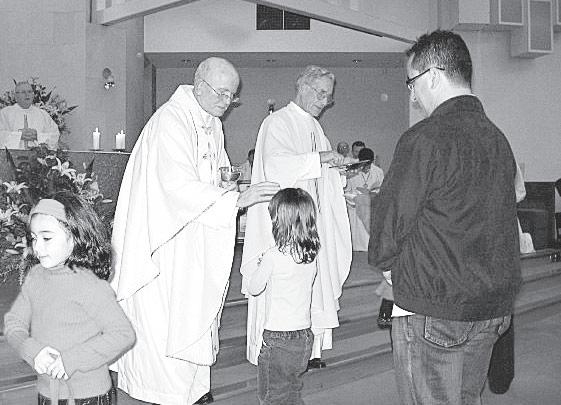
versary Mass would remember that farm where the Norbertines held annual retreats with the Columbans, Camillians and African Missions Society in the 1960s and 70s. Fr Peter Stiglich, the current Superior of the Norbertines in WA, also based at Queen’s Park, believes Fr Reynolds is an unassuming man, but hard-working and meticulous in his preparation for his ministry.
He’s so good, Fr Stiglich says, that the next week’s readings come out on the Monday as he prepares for the following Sunday’s homily.
“He’s an unassuming, not an ‘out there’ person; he’s a quiet, faithful person,” said Fr Stiglich, who has known Fr Reynolds for over 28
New Release - Pope John Paul II

This epic film follows Karol Wojtyla’s journey from his youth through to his last days on the Chair of St Peter. Filmed on location in Poland and Rome, this film stars Jon Voight in his Emmy-nominated performance as Pope John Paul II. Also includes 16 page collector’s booklet, deleted scenes and footage of the Vatican World Premiere screening. Requires Multizone player.
$49.95+postage
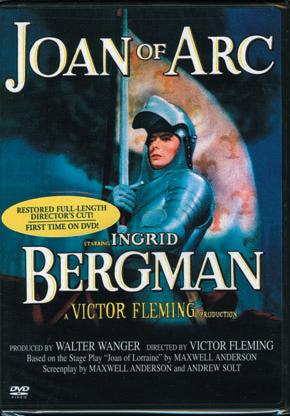
Ingrid Bergman stars as St Joan of Arc, the peasant girl who inspired her nation and the world with her remarkable faith in God and her humility in doing His Will, no matter what the price. Fully restored Director’s cut. Requires multizone player.
Special Price!
$39.95+postage
years. Fr Reynolds also worked as a chaplain for the Mercy Sisters for years, and also had involvement with St John of God Sisters.
Fr Sean Bredin, who gave the homily at Fr Reynolds’ 50th anniversary Mass, also feels a great sense of gratitude towards the Norbertines - especially Fr Reynolds - for their comradeship and for the number of times he has supplied for the Camillians in parishes and hospitals over the years.
As Fr Reynolds reflects on his 50 years as a priest, he will look back, Fr Bredin said, even beyond his own spiritual formation to the time when a man walked on this earth to “show us what God was like and to help us understand qualities like
truth, mercy, freedom, forgiveness and love; to help us understand what these meant and what they could mean for us and for our world”.
“That man, we believe, was God and He brought together a very disparate group of people who continued His work on this earth, and His followers bonded themselves into a community – the community individuals were called, and are called, to minister as priests to God’s family,” he said.
“There was a call, and I’m sure Fr John remembers it graphically.
“There was an answer and there is priesthood; and for the last 50 years, that priesthood has brought him to Australia and to many dif-
New Release - Saint Francis
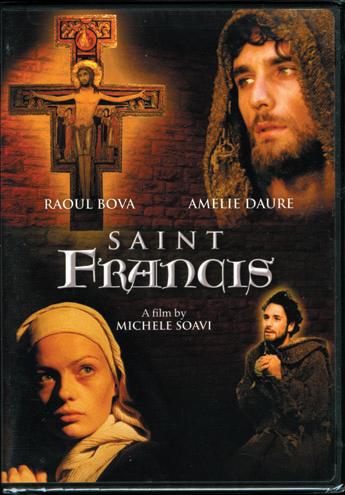
Filmed on location in Assisi, this two-part film tells the story of Saint Francis from his childhood to his death. This film depicts St Francis’ conversion to a life dedicated to living the Gospel in simplicity, poverty and charity. Includes 16 page collector’s booklet and special features. Requires multizone player.
$59.95+postage

This dramatic film of the great Padre Pio captures the power, humility and humour of St Pio, the priest who healed the sick, bore the stigmata, and suffered from satanic attacks and misguided Church officials. Winner of the Audience Award, 2001 LA Italian Film Awards. Includes 16 page collector’s booklet. Requires multizone player.
$49.95+postage

ferent parishes and hospitals; and it was in those places that the songs and promises of priesthood found expression.”
He said the priesthood is more than “the things that we shape and shape us”, it is primarily about witness.
“Words are important, of course, and priests use a lot of them,” Fr Bredin said, “but no human words reach the depths to which real witness goes. On his ordination day 50 years ago, Fr John was different.
“What was different was that he was given a responsibility and an authority to attend in witness and in service to those given to his care.
“What was different was that he was given and he accepted a ministry of God’s presence in the world, and what that means in simple language is that it’s his work as a priest to help open up the presence of God to people.
“And this isn’t neat and packaged. This is about mystery; about standing humbly before our God in wonder and awe, trying to grasp something of the whiff of God through our own experience and living, through what God is saying to us in the Scriptures.”
The Jeweller’s Shop
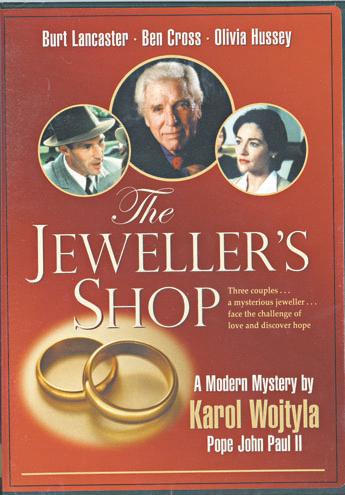
Karol Wojtyla’s classic play about human relationships, love and death is brought to life in this highly popular feature film starring Olivia Hussey (Mother Teresa), Burt Lancaster and Ben Cross. Requires multizone player.
$49.95+postage
Also Available
The Jeweller’s Shop
Complete text of the play By Karol Wojtyla
$25.95+postage

 ■ by Kevin Ryan
■ by Kevin Ryan
Inside:
Building a school
Do boys have to be bored, fat and dumber than their sisters? The first in a series about educating boys today.
modern boydom. But how and when things changed for boys is hard for me to pin down. Somewhere not too long ago, boys went indoors. When they don’t have their eyes glued to some screen, whether computer, TV, movie or even, yes, cell phone, they are shuffling along alone or in sullen groups at the mall. Building tree huts and shooting at squirrels with beebee guns lost out big time to the latest version of Xbox and the newest action-adventure fantasy at the Cinaplex.
And they look so bored! How can a 12-year-old boy be that bored… unless he has been made so passive with canned pleasure that he doesn’t know what else to do. He has never learned to do anything other than turn on his toys. He doesn’t have the reading habit because DVDs are easier. He doesn’t play outside in the neighbourhood. First, the other guys aren’t there. They are indoors and are stuck to their own screens. Second, he and his peers’ parents are convinced that if he is outside, he’ll be kidnapped, beaten up by bullies or meet a recruiter from the North American Man Boy Love Association.
only to get their ball and glove and work off the pent-up energy from the school day.
Second, there are fewer and fewer male teachers. The principalship, once the province of men, is now more and more the province of the fairer sex. Those male teachers that are left live in fear of intimacy or even putting a hand on a boy’s shoulder, lest they become a tort lawyer’s meal ticket.
Third, the academic ante has been raised in our schools. The stakes are higher and there is more and more pressure to get the children ready to compete in the global economy. That can be translated into students becoming more and more skilled at the manipulation of symbols, tasks at which our boys are not genetically endowed and, thus, are falling behind. Most educators are scratching their heads at what is now called the “crisis of boys.”
surance.

The University of Notre Dame’s medical school in Sydney is open - it’s an impressive achievement. Vista 2-3 Blessed are the
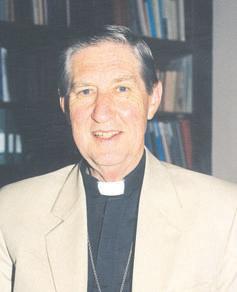
Aten year old boy, whom I watch with an eagle’s eye, is reading The Dangerous Book for Boys by Conn and Hal Iggulden. The book is teaching him how to play poker, build a go-cart from scratch, how to fold a paper glider so that it really flies, to make a paper water bomb and much, much more. He has found his Holy Grail. Wedged in between the book’s black arts are spirited short essays on heroic battles, good manners and, yes, girls. Be forewarned, gentle reader, this book is definitely not politically correct, and worse, it could turn around a boy’s life.
The 10-year-old I have in my sights is a busy home-schooler whose days and heart are torn between pitching in the town baseball league and his beloved violin. While a leader on the ball field and popular with his mates, I have to admit, he is sort of “out-of-it.”
When the talk moves from the ballgame to video games, the kid is a wash-out. When the conversation moves on to television, as it does regularly…(television and movies being the lingua franca of boys from six to that ever-moving outer boundary of adolescence)…, the boy is a dunce. He thinks “24” is the definition of a day. He wouldn’t recognise Paris Hilton if she tried to run him over. He’s focused on learning how to step into a pitch and to do something with his violin that I don’t comprehend. He is clearly out of step with
Our modern boy doesn’t get much exercise which you can tell from his rounded shoulders and the baby fat which he should have shed years earlier. But how could he. He is driven or bussed to school for safety reasons. When he gets exercise it is part of an adult-saturated, over-organised sports world where physical contact between boys is only allowed when they are covered head-to-toe with enough protective gear to make movement barely possible.
Arguments about whether a referee [yes, of course, they have to have referees] made the correct call is strictly verboten. A scuffle with another player could get him banned from the league and his anxious parents in the grandstands would be forced to live in infamy. Other than manipulate the “on” and “off” switches, the volume controls and a few other knobs, modern boy doesn’t know how to do much. He has never had to do much and the men in his life have conveniently disappeared or are too busy with their work or their own pleasures that they have never taught him to do anything. He doesn’t know how to wash a car, saw wood, hammer a nail, trim a hedge, weed a garden [let alone raise a vegetable garden], bait a rat trap, or repair a punctured bike tyre. Maybe with sufficient nagging, he can make his bed [sort of], take the dishes out of the dishwasher and put out the garbage, chores that in another day would have been the province of his sister.
Then there is school. In recent decades, no part of society has become more feminised, more boy-unfriendly. First of all, for young boys to sit quietly in desk seats for six or seven hours a day has long been contrary to the laws of nature. However, in the past, children walked to school in the morning, walked or ran home for lunch and did the same at 3:00,

On the other hand, girls are doing well. They outshine boys in all aspects of the symbol-driven world we live in. They get better grades and have higher aspirations. Girls outnumber boys in Advance Placement programs, in most math and science courses and in all extracurricular activities except sports. In 2006, girls represented 58 per cent of the student bodies at US colleges and universities. It is little wonder that junior is in a funk. He is not living according to his nature, and while he may not know it, he can feel it. Somehow we have changed the way we live and while there appear to be many benefits, the way we are living is having disastrous effects on our boys. Given all the other crises facing the world, getting excited and making serious changes in how we raise our boys may not vault to the top of our collective priority list. But think about it. A nation without men, with only pleasure-saturated, spineless screen-watchers is a truly frightening prospect.
Kevin Ryan founded the Centre for the Advancement of Ethics and Character at Boston University, where he is professor emeritus. He has written and edited 20 books. He has appeared recently on CBS’s “This Morning”, ABC’s “Good Morning America”, “The O’Reilly Factor”, CNN and the Public Broadcasting System speaking on character education. He can be reached at kryan@bu.edu. - Mercatornet




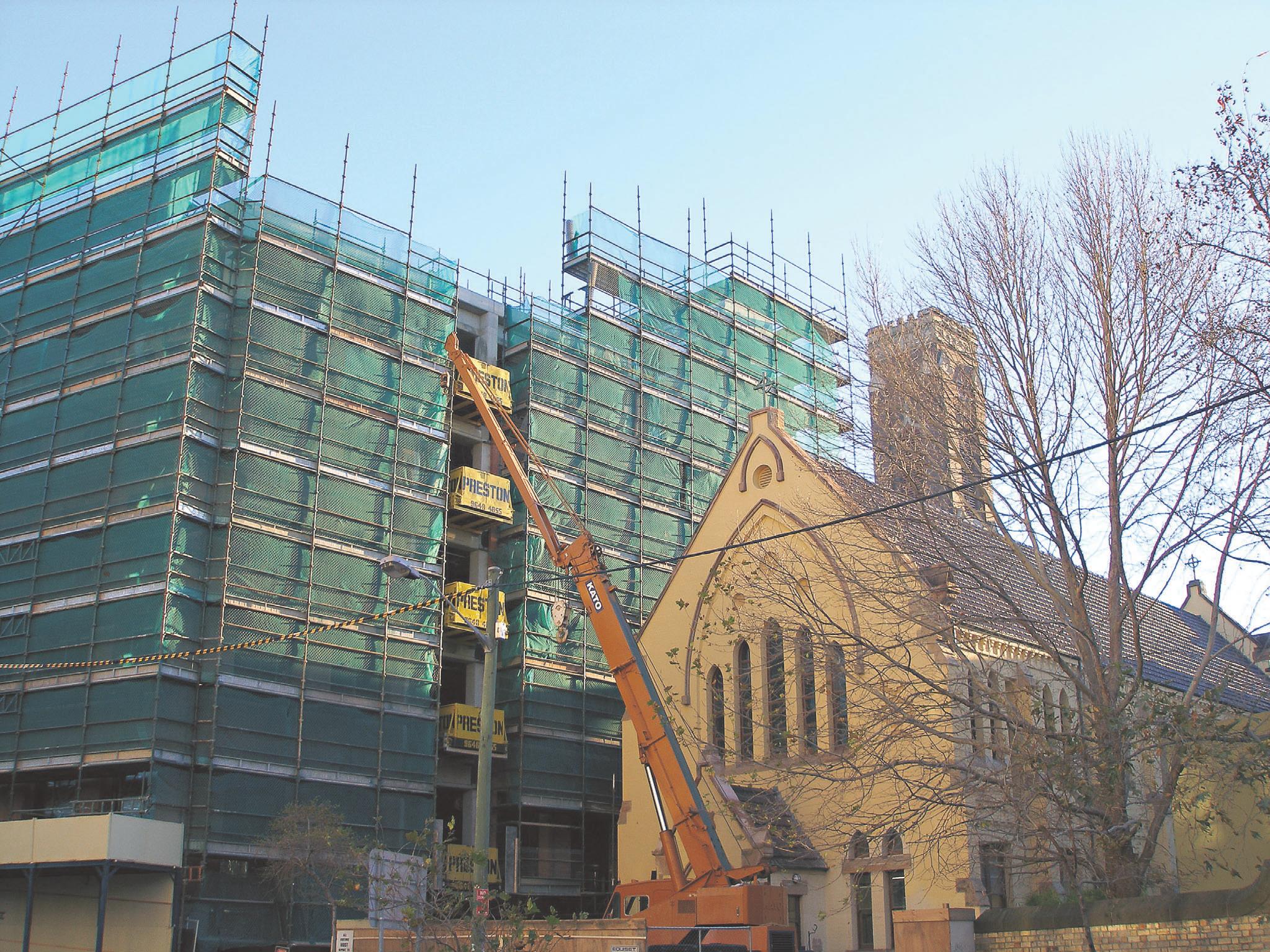




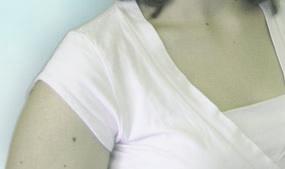


Cardinal George Pell’s wildest dreams have become a reality as Notre Dame’s medical school gains accreditation, reports SYLVIA DEFENDI
When Cardinal George Pell expressed interest in the possibility of a Sydney campus under the University of Notre Dame Australia (UNDA) umbrella several years ago, he was particularly interested in developing a medical school, according to deputy chancellor Dr Michael Quinlan.
A few years down the track, UNDA is being recognised as one of the few universities with two accredited schools of medicine
– one at Fremantle’s campus and the other a recent instalment at the growing Sydney campus. The four-year graduate-entry course gained accreditation on July 31 and will be offered to prospective students in a newly-built
“We want students to serve where doctors are desperately needed” -DR MARK MCKENNA-
seven-storey building, equipped with purpose-built teaching facilities, including science laboratories and simulated clinical teaching areas.
While only new to the eastern campus, the school of medicine had been seeking accreditation for over three years and will be admitting 104 students when it first opens its doors in 2008.
In fact, the university was flooded by over 500 applications for entry into the newly accredited school of medicine, located at the university in Darlinghurst, Sydney.
“This great demand is in part because along with Commonwealth Supplied Places, UNDA have made a firm resolution to keep tuition fees appropriate,” UNDA executive Dean of Medicine Dr Mark McKenna said.
“We want students to serve where doctors are desperately needed, which will be much more likely if we help keep the debt down.”
Both schools of medicine aim to accept 100 students each year. However, before students were able to apply, much preparation was necessary to gain accreditation through the Australian Medical Council.
“Various partnerships made the process possible. Perhaps most notably, from the medical profes-
sion,” the Dean of Sydney’s medical school, Dr Julie Quinlivan, said. UNDA’s school of medicine in Sydney now has clinical partnerships with 15 health care providers in NSW and Victoria, including major Catholic hospitals, public teaching hospitals and private practitioners in metropolitan and regional areas.
Individual philanthropic gifts to the new school of medicine have also assisted in gathering resources prior to accreditation.
On July 16, prominent doctor and philanthropist Dr Jerry Schwartz donated $250,000 to the school of medicine in Sydney to establish the Schwartz Foundation Anatomy Museum and Clinical Skills Laboratory.
The museum now houses a large collection of anatomical models and plasticised body parts to aid in the teaching of anatomy and physiology to medical students. At the time, Dr Schwartz said he was thrilled to be involved in the initial stages of the medical school. Dr McKenna said the recent accreditation highlighted the maturity of UNDA in its ability to gather the resources necessary.
“It is also thanks to a very gifted Dean of Medicine, Dr Quinlivan, who has a deep understanding of what it means to be a Catholic doctor,” Dr McKenna said.
As rural Australia yearns for more medical professionals, Prime Minister John Howard congratulated two Perth universities on July 23 for their exemplary efforts in training medical students in remote surroundings.
Mr Howard joined representatives from the University of Notre Dame Australia (UNDA) and the University of Western Australia (UWA) to officially open the Rural Clinical School of Western Australia headquarters building in Kalgoorlie.
“We aim to provide our students with excellent rural experiences, in the hope that these experiences will encourage our graduates to practise in areas of unmet need.”
“They are committing themselves to a life that forsakes some of the comfortable constants of medical practice in the more heavily populated areas,” he observed. “In doing so they are representing the finer aspects of their profession in a very impressive way.”




With core units in philosophy, theology and ethics built into the course, educating future doctors in the values of Christianity has been a major focus of the medical curriculum.
“Until the medical school at Fremantle was accredited, there was no opportunity for a Catholic medical school – now we can offer

The Rural Clinical School is a joint venture between two universities who saw a need for future medical professionals to gain worthwhile experience in rural settings across WA. On August 8, 2006, after discussions between the two WA universities, a Memorandum of Understanding was signed which established the partnership for delivering rural medical edu-

prospective students that option,” Dr Quinlan said. Expressing her delight to be offering students a Christian alternative, Dr Quinlivan said she was also glad to offer the new medical school “as a positive step in addressing the shortage of doctors in New South Wales, Victoria and Queensland.”

cation, combined expertise and resources from both universities to support rural clinical training for WA medical students and reflected a national first.
UNDA’s Deputy Chancellor Dr Michael Quinlan told The Record that the Federal Government was keen to showcase the initiative between the two universities as an example to other medical schools across the nation.
Currently there are 62 students from third-year UNDA and fifthyear UWA based in Kalgoorlie, Esperance, Albany, Narrogin, Bunbury, Geraldton, Karratha, Port Hedland, Broome and Derby. These medical students will continue to spend 2007 being tutored by medical, nursing and allied health staff, working alongside staff in healthcare centres, such as Aboriginal Controlled Health organisations, hospitals, specialists’ rooms and local doctors’ rooms in the country towns.
“Studying in a rural setting used to have a bad reputation, but that is no longer the case. Medical advances and the creative pooling

of resources have meant that students now believe they are missing out if they are not awarded the opportunity,” UNDA executive Dean of Medicine, Dr Mark McKenna said.
At present, a quarter of UNDA third–year medical students will spend a year at a Rural Clinical School, with those who have not experienced rural WA being awarded a shorter opportunity during their fourth year of study.
“At Notre Dame we aim to provide our students with excellent rural experiences, in the hope that these experiences will encourage our graduates to practise in areas of unmet need,” UNDA Dean of Medicine, Adrian Bower, said.
UWA’s Vice-Chancellor, Professor Alan Robson said both universities had long recognised the value in supporting future and current country practitioners in study and professional development. In his opening address Mr Howard saluted the young medical students and doctors who had found a passion to work in remote areas of Australia.

“It may take a while,” says executive Dean of Medicine at the University of Notre Dame Australia (UNDA) Dr Mark McKenna, “but the values our medical students are strengthening through our ethics-based course will impact on the medical field.”
Born out of the redeveloped Fremantle Old Furniture Factory on Henry Street, UNDA’s medical school will produce its first medical graduates at the end of 2008.
Dr McKenna, who with UNDA Deputy Chancellor Dr Michael Quinlan developed the university’s medical curriculum, recalls the journey that saw a professional medical course, grounded in philosophy, theology and ethics emerging on the Perth scene.

“WA architect Marcus Collins transformed the old furniture factory, which was ready for use in 2005, while Dr Quinlan and myself travelled to the University of Queensland to discuss their suc-

Archbishop Barry Hickey has begun a series of short talks on his website explaining the Beatitudes and their application in daily life. All the talks may be found on Archbishop Hickey’s website at www.perthcatholic.org.au

Blessed are the meek
Welcome to our third beatitude: “Blessed are the meek for they shall inherit the earth.” Meek does not mean weak, nor is meekness fear. Meekness is the strength of character that enables us to accept other people as they are. It is how Jesus described himself: “I am meek and humble of heart.” It is also the way He lived – teaching, guiding, healing, but never controlling people.
From about the age of two, children begin to become aware of their own personal power to ‘do’ things in the world outside themselves. Most of their efforts to develop their personal power will be impulsive, not influenced by rational thought because they are not yet rational. These are times requiring patience, encouragement, wisdom and love from parents. This early development of personal power is crucial to the development of a fully functioning adult because it is the energy that enables people to accept responsibility for their working life, their contribution to society, the proper use of the creative power of their sexuality, and the care and protection of the family they establish.

cessful medical curriculum,” Dr McKenna said.
“That curriculum was accepted and altered to hold a strong emphasis on bioethics, philosophy and theology that is quite unique to the university,” he said
After gaining accreditation from the Australian Medical Council, 80 graduates were accepted to begin their four-year long medical studies in 2005.
Dr Quinlan said that in its specialised curriculum, the Catholic university was in no way denigrating the courses available outside Notre Dame.
“But we do come from a slightly different perspective,” he said.
Dr Quinlan says that UNDA sees the medical profession as more of a vocation than just a profession.
“We feel that through their studies students have been equipped to ask the big questions in life and find solutions, to understand spirituality and its importance to many patients,” Dr McKenna said.
Spontaneous self-expression suppressed in a child will usually result in fear of self-expression in others, with a consequent impulse to control them. In children this is called bullying; in adults, control. It is closely associated with problems of alcohol, drugs, gambling, child abuse and domestic violence. Control is not discipline. Discipline guides the child towards awareness and control of impulses, leading to the ability to exercise true self control. Control is the attempt to suppress a child’s impulses, with the result that he never learns to understand and master them. Jesus went to a lot of trouble to show us the importance of meekness. Before He began His public ministry, He was tempted to take control of all the kingdoms of the world, but refused. When His Apostles tried to control the crowds who wanted to approach, He welcomed everyone, especially the children. Finally, He suffered much and was raised up on the Cross and in the Resurrection, not so that He could impose His will, but so that all people would be drawn to Him. This is God’s gift of freedom to us, and meekness is our respect for it in others.
NEXT WEEK BLESSED ARE THOSE WHO HUNGER AND THIRST FOR JUSTICE
The latest report in the US Journal of Pediatrics about the negative value of video programs designed to turn babies into geniuses should be widely heralded as yet another declaration that Mums and Dads are the ones who really matter in the lives of children, and particularly children in their earliest years.
Research into the widely marketed US video programs revealed the more time babies spent with them, the greater the discrepancy between their vocabularies and the vocabularies of infants whose parents read to them or told them stories. Since word skills are the most significant predictor of children’s learning and social abilities, this is yet another triumph for parents.



Fortunes are spent on these and endless other educational gimmicks which in reality are no more than profit-taking by entrepreneurs contributing to the constant process of undermining the confidence of parents in their ability to raise their children better than anyone else can. The single biggest contribution parents can make to the intellectual development of their babies, infants, toddlers and children is to talk to them – endlessly. They don’t need to understand words to begin to learn words and the ideas they contain – they only need to hear them constantly from the voices of those who love them, Mum and Dad.
It is 25 years since the US state of Missouri introduced a program called Parents as Teachers, in which home visitors encouraged mothers to simply spend time talking with their babies, beginning in the womb and continuing thereafter. When mothers verbalised what they were doing around the house, pushing the pram, bathing the baby or preparing for Dad coming home, children learned language rapidly. The results were remarkable and stood the test of time right through school and into adulthood, including families in St Louis slums and the backblocks of the Ozark Mountains. The children not only did better at school, they also did better at avoiding delinquency and crime. And Mothers were much happier because they had better and more confident relationships with their children.
The constant message from experts and marketers in our society is that children should be handed over to somebody else – almost anybody else – to prepare them for school and for life. The constant message from real studies is that nobody – not anybody – can bring as much good into their children’s lives as can their parents, and especially their mothers in their earliest years. Mums and Dads are the ones who really matter. If you are a Mum or Dad, please believe it and act on it.
i say, i say
 Guy Crouchback
Guy Crouchback
People concerned that Harry Potter may attract children to the occult are, I think, worrying needlessly.
Apart from anything else, nobody really believes Harry Potter is anything but fiction. However, there are subtle snares around which really are dangerous. Manicheanism and Gnosticism are always with us, and often in this
age of political correctness attract official imprimatur.
Perhaps one of the greatest and most fundamental challenges facing Western Christianity today is the resurgence of Gnostic superstition.
An example is to be seen in the local press where it is reported (West Australian, August 4, 2007) that:
“The Rottnest Island Authority has backed calls to stop use of a section of the Rottnest Island Lodge after an eminent historian likened it to holidaying at the Auschwitz concentration camp because nearly 300 Aboriginals had died in its rooms.
“Authority chairman Laurie O’Meara said he was unhappy the Quad was used as holiday accommodation. He wanted [it] turned into a museum.”
A certain assumption of a right to dictate policies on spiritual questions here, I think. And an assumption of supernational significance
in a collection of bricks and mortar. Generations of innocent holidaymakers have been happy that the Quad has been holiday accommodation and there is no reason they should not be. The likening of it to Auschwitz is ridiculous and offensive. Confining Aboriginal convicts on Rottenest was an attempt by the early government to deal with a difficult situation, not deliberate murder.
According to old accounts they were allowed to roam the island during the day, fish and spear Quokkas, etc. Many who died there died in an influenza epidemic, a story I broke when working on The West Australian years ago.
The Rottnest Quadrangle today has, in spiritual terms, nothing to do with the old prison, nor do the people who stay there.
It is a building, and it is spiritually neither better nor worse than
any other building. For most people the associations of the Rottenest Quadrangle are happy ones and there is nothing wrong with that.
For more than 90 years Rottnest has been a holiday resort, where generations of West Australians have, among other things, learnt to appreciate the wonder and beauty of certain aspects of the Creation.
The Quadrangle itself has apparently not been used as a prison since 1906. We should remember the Quad’s past, as we should remember all history.
As Christians we should also thank God for Rottnest’s beautiful beaches, the sea sparkling in its bays and coves, the delight and wonder of children seeing their first quokka or collecting tiny coloured and patterned shells on its sands on lovely still mornings.
Our fathers who made it a holiday resort while managing to pre-
serve so much of its unique atmosphere of tranquility and beauty got something right. There is something creepy, superstitious and manichean in the push to make it a place of collective guilt.
Further, there are practicalities: Rottnest accommodation is desperately strained.
If the Quadrangle is turned into another museum (there is one already), accommodation will be further reduced or new accommodation will have to be built, further damaging the unique and limited natural environment.
People died there, yes. But people have died all over the world. There are hotels at Gallipoli and we do not - or should not - think this a desecration.
Solemn reflection on the past is a good thing, but joy is a good thing too, and here we have a source of joy. We should cherish it.
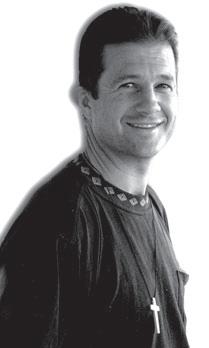
■ with Mark Reidy
Ishmael Beah’s journey from horror to hope is evidence that no amount of darkness can ever overcome the light of love.
In his book, “A Long Way Gone”, Ishmael gives a heart rending account of his transformation from gentle, carefree child to coldblooded killer and reveals how the remnants of his humanity were

I know that we call Mary the “Mother of God” but I find it difficult to understand this teaching. It seems to me that God, who is eternal and who created everything, including Mary, cannot possibly have a mother. How could Mary be the mother of her creator? Does the Bible have anything to say about this?
only resurrected through the selflessness of others. In 1993 Ishmael was living the life of any rural 12year-old boy in Sierra Leone, when the ravages of war replaced his innocence with hate.
At first separated from his family and then later discovering their charred remains, he was left to wander for months in hostile terrain until the government army finally picked him up.
Here he found physical safety and emotional solace in the company of others, as well as psychological refuge in an endless cocktail of drugs.
This horrific environment quickly manipulated his fear and pain into anger and a yearning for revenge and he embarked on a murderous rampage that completely absorbed both his conscience and his compassion.
For two years he remained submerged in this world of hideous
violence and it became more deeply ingrained with each act of atrocity.
When UNICEF finally intervened and Ishmael was placed into a Rehabilitation Unit, it took many months of love, patience and commitment, to even begin stripping away the armour of destruction and revenge that had encased him.
It took even more time to touch upon the pain and fear that fuelled such hate. Ishmael now lives in New York, has a BA in political science, has addressed the UN on several occasions and travels the world drawing attention to the plight of child soldiers.
The overwhelming response to Ishmael’s story across the world indicates that many have been touched and inspired, as well they should be, by his triumph over such adversity.
But do we apply that same empathy to the Australian children who have been ravaged in the war
that is going on beneath our very noses? An increasing number, like Ishmael, are finding themselves, through family breakdown or a loveless environment, wandering in an emotional wilderness, engulfed in their own fear and pain.
They, too, stumble into a refuge in which they find acceptance, but also tragically, a destructive lifestyle.
They bond together with others who share their pain, but sadly, serve only to drag them deeper into the pit of self-destruction.
Drugs and violence also become central to their existence as they seek ways to cope with the war within.
No doubt most people live with the hope that these children will eventually emerge from their horror and will embrace the life for which they were created, but how many are willing to extend a hand into their darkness?
Today the gentle, compassionate and articulate Ishmael finds himself eagerly embraced by those who celebrate his victory, but few would have dared to embrace the vacanteyed, emotionless killer that he once was. However, it was exactly these heroes, who stepped outside their own feelings of fear and selfpreservation, and saw behind the mask of anger and violence, who were able to breath new life into this traumatised young boy.
A nurse at the Rehabilitation Unit, an uncle he had never met before and a woman in the US who embraced him as a son, formed the links of a chain that were able to lift Ishmael from his chasm of hopelessness and despair.
They, like Jesus, chose not to condemn or judge the individual for what he had done, but instead saw a wounded child in need of healing.
So too, must we.
If Mary was created by God, how is she His mother?
As you say, we do call Mary the “Mother of God”. We call her by that title, for example, in the “Hail Mary” when we say “Holy Mary, Mother of God, pray for us sinners...”
In simple terms, what we mean by this expression is that Mary is the mother of Jesus, who is God the Son, a divine person. Therefore ,she is the mother of God. Naturally, we do not mean that Mary gave birth to God the Father, the Creator. There are various relevant passages in Scripture. When the Archangel Gabriel appeared to Mary in the Annunciation, he told her that, if she accepted, she would conceive and bear a son, “and you will name him Jesus. He will be great, and will be called the Son of the Most High...” (Lk 1:31-32) That is, Jesus is the eternal Son of the Most High God, he is God the Son, the second Person of the Blessed Trinity.
The Angel went on to say: “The Holy Spirit will come upon you, and the power of the Most High will overshadow you; therefore the child to be born will be holy; he will be called Son of God.” (Lk 1:35) Some days later, Mary’s kinswoman Elizabeth, moved by the Holy Spirit, acknowledged that Mary was indeed the mother of God, calling her “the mother of my Lord”. (Lk 1:43)
And in reply, Mary herself, in the Magnificat, was moved to say that, because God in this way “has looked with favour on the lowliness of his servant... all generations will call me blessed.” (Lk 1:48)
Mary thus fulfills the prophecy of Isaiah: “Behold a virgin shall conceive and bear a Son and his name shall be called Emmanuel.”
(Is 7:14) The name Emmanuel, of course, means “God is with us”.
his divine nature, nonetheless in Bethlehem she gave birth to a divine person, the second person of the Trinity, so that she can truly be called the mother of God.
her Son according to the flesh, was none other than the Father’s eternal Son, the second person of the Holy Trinity. Hence the Church confesses that Mary is truly ‘Mother of God’ (Theotokos).” (CCC 495) St Cyril of Alexandria, who intervened powerfully in the Council of Ephesus, wrote: “It has amazed me that some people should be in doubt as to whether the holy Virgin should be called Mother of God. If our Lord Jesus Christ is God, how can the holy Virgin who bore him not be Mother of God? This is the belief that the divinely inspired disciples have handed down to us, even if they have not recorded the term. This is what we have been taught by the holy fathers. Indeed Athanasius, our father of famous memory, in his book on the holy and consubstantial Trinity, in the third discourse, calls the holy Virgin throughout, Mother of God.” (Epistle 1, 27:30) Q & A with & A with Father Flader
While it is true that Mary gave Jesus only his human nature, not
This truth is a dogma of faith, proclaimed in the Council of Ephesus in 431 AD. That council condemned the errors of Nestorius, who maintained that in Jesus there were two persons, a human person and a divine person, and that Mary was the mother only of the human person.
The Council proclaimed: “If anyone does not confess that the Emmanuel (Christ) in truth is God and that on this account the Holy Virgin is the Mother of God – since according to the flesh she brought forth the Word of God made flesh – let him be anathema.”
The Catechism of the Catholic Church teaches: “In fact, the One whom she conceived as man by the Holy Spirit, who truly became
Unlike rivers, history is not compelled to flow downhill, as the careers of Ronald Reagan, Margaret Thatcher and John Paul II show.
The President, the Pope, and the Prime Minister
By John O’Sullivan Regnery Publishing, 2007$27.95
Ishould issue a health warning to left-wing intellectuals of all hues who chance upon this volume, for it may cause them mild bouts of apoplexy. For John O’Sullivan has chosen to write about a decade of great events, brought about by three people of great stature; it could be called “Ten Years that Shook the World”, in strict contrast to another book that detailed the Bolshevik rise to power. The author is very well placed to do so, having covered the Reagan presidency as a Washington columnist, having been a special adviser to Margaret Thatcher and having written extensively on John Paul II and the Catholic Church’s international influence. Currently he is editor at large for the National Review.
To this exhilarating account he brings his own shrewd, informed political judgments. In contrast to the depressing accounts of wars and rumours of wars that we read daily in our newspapers, we are treated by O’Sullivan to an alternative: the spectacle of good men, and a woman, shaping their times for the better.
“Above all, this book gives the reader hope, hope that the cynical world of politics – and the weary world of Church politics – can be transcended by a real, deep-founded Christian vision, enunciated by those of faith and courage.”
In the early 1970s no one would have predicted the pontificate of Polish prelate, Karol Wojtyla; still less might they have considered ex-actor, ex-Governor Reagan of California as a future US President; and they would have dismissed the possibility of a little-known politician, Margaret Thatcher, becoming the first woman prime minister of the UK. Yet in 1978 John Paul II was elected pope, in 1979 Margaret Thatcher became prime minister and in 1981 Reagan became president. “Events,” as the late Harold Macmillan mordantly put it, aided this process. John Paul I had died suddenly; the “winter of discontent” and the unions had brought the UK to its knees; and the signal failure of the Carter administration made the way clear for a Republican victory.
All three inherited a widespread malaise and sense of decline; for the Pope it lay within the Church, for the others within the world. All three vigorously opposed the pessimism surrounding them: “Be not afraid!” were the Holy Father’s opening words on the balcony of St Peter’s on that memorable day of October 16.
Reagan had long enunciated his own conviction about Communism, stating “my theory of the Cold War is that we win and they lose”. And Margaret Thatcher brought her own firm belief in traditional virtues, such as self-reliance, trustworthiness and initiative, and her equally strong views on economic liberty and patriotism – all later encapsulated as “Thatcherism” – to her role. O’Sullivan
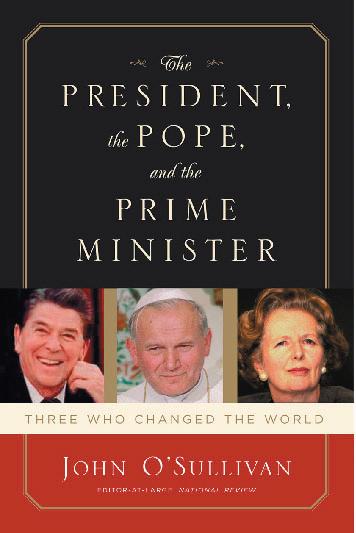
reflects on the attempts on the lives of all three leaders, suggesting that (in contrast to Sarajevo) “it was the failure of assassination that may have altered history”. Everyone knows the drama of the Pope’s near-death; what is less known is the grave condition of Reagan after Hinckley’s shooting.
Because of his courage in walking into hospital, although in great pain, and his jokes with the doctors – “I hope you are all Republicans?” – its gravity has been played down.
Thatcher, too, only just escaped the IRA bombing of the Grand Hotel in Brighton during the Tory Party conference. Such attacks will focus the thoughts of seriousminded people. John Paul II and Reagan believed providence played its part; Margaret Thatcher, of humble Methodist stock, who lost close friends and colleagues in the bombing, wept later.
The author also shows how the chemistry between individuals can have far-reaching consequences. He details the friendship between Reagan and Thatcher, their warm, though differently expressed, relations with the Holy Father and the relationship of all three to Mikhail Gorbachev, Soviet leader. The Pope was to describe him as “a providential man”. Thatcher, in her own somewhat regal fashion, announced after her December 1984 meeting with him at Chequers, “I like Mr Gorbachev. We can do business together”. And Reagan, in his deceptively laconic style, remarked after the Geneva Conference of 1985, “I think I can work with this guy.”
O’Sullivan’s sub-title is simply “Three who changed the world”. Today, with other urgent problems such as the Iraq war and the terrorism of Islamist fanatics, it is easy to forget the frigid reality of the Cold War and Communist imperialism, which haunted and dominated the post-war Western world. In June 1982 Reagan had an historic meeting with John Paul II. Both men were at one in their view of the “evil empire” (Reagan’s words) and both men were committed to working to ensure the freedom, political and religious, of the captive peoples of that “empire”.
Reagan commented that “we both felt a great mistake had been made at Yalta” – when the destinies of millions had been decided against their will by the great powers. He knew that being publicly truthful about the reality of Communism would give hope and self-expression to countries behind the Iron Curtain.
In her turn, Thatcher was regarded by ordinary eastern Europeans as a symbol of opposition to Communism. Once given a tumultuous welcome by the shipyard workers at Gdansk, the Iron Lady wept again.
It is also easy to forget the extraordinary spectacle, which O’Sullivan reminds readers, of the closing days of the Soviet empire, when

Larger than life: Pilgrims walk under a poster of Pope John Paul II in Czestochowa, Poland, on June 28, 2005. The same day, the Vatican formally opened the process of beatification and canonisation for the late pope in a ceremony at Rome’s Basilica of St John Lateran.
one by one with reckless speed the countries of Eastern Europe defied their masters and chose democracy.
On September 12, 1989, Poland established its first post-war democratic government; two months later the Berlin Wall came down; by spring 1990 the “evil empire” had shrunk beyond recognition. Yet again, it is not widely grasped that Reagan, in the words of Charles Moore, former editor of The Daily Telegraph and currently writing Margaret Thatcher’s biography, was the “greatest nuclear disarmer who ever lived”.
He believed that the doctrine of Mutual Assured Destruction (MAD), on which nuclear deterrent theory was based, was immoral – even mad? - because the suffering it would inflict was unjustifiable. In his own creative, intelligent way he advocated and stuck to in the face of much opposition, a Strategic Defence Initiative (SDI) which changed the whole nature of the nuclear debate.
Not the least of this book’s strengths is the way it lightly but steadily shows how leftwing, liberal theorists have been confounded in their estimates of all three protagonists in this dramatic decade. Reagan was dismissed as an “amiable dunce”. Now – witness his funeral - he rivals the reputation of FDR and, to my mind, equals that of Lincoln. Margaret Thatcher, once described to me as “evil” by the wife of an Oxford professor and dis-
PHOTOS: CNS
missed by the Mistress of my old Cambridge college as “not vulgar, just low”, is ranked alongside Churchill and seen as the greatest 20th century peacetime prime minister. The title “John Paul the Great” gives some sense of the historical importance of the late Holy Father.
Again, the author employs a light but mocking touch to dismiss some petty players: “Environmentalists... were whoring after strange gods, notably Gaia” and referring to “Labour’s foreign policy herbivores”. We learn that in the waning days of Communism “there sprouted all kinds of Marxists – Thatcherite Marxists, Singapore Marxists, even Pinochet Marxists.” Clearly, doctrinaire Soviet apparatchiks and humourless left-wing apparatchiks deserve each other.
Above all, this book gives the reader hope, hope that the cynical world of politics –and the weary world of Church politics – can be transcended by a real, deep-founded Christian vision, enunciated by those of faith and courage. In their individual ways John Paul, Reagan and Margaret Thatcher had the confidence to defend civilisation. I showed this book to a friend of impeccable, wishywashy, liberal instincts.
“It’s a very partisan account” he said. “What writer isn’t?” I countered, adding after a pause, “But is it true?” Francis Phillips writes from Bucks in the UK.


VATICAN CITY (CNS) -
Cardinal Jean-Marie Lustiger, the Jewish-born former archbishop of Paris who defended the right of believers to have a say in public debates, died at the age of 80.
He had been the voice of French Catholics for nearly a quarter-century and spoke out against antiSemitism, as well as promoting Catholic dialogue with Jews and with the nation’s growing Muslim community. He died on August 5 in Paris after a long illness. The funeral was to be held on August 10 at the French capital’s Notre Dame Cathedral. His death leaves the College of Cardinals with 182 members, of whom 105 are under the age of 80 and therefore are eligible to vote in a conclave.
Pope Benedict XVI called the Cardinal a “perceptive intellectual” and “passionate pastor” who “put his gifts at the service of the faith” in order to bring the Gospel to all aspects of life and society.
The late Cardinal was “a man of faith and dialogue,” the Pope said, praising his generous commitment to “fostering ever more fraternal relations between Christians and Jews.”
The Cardinal, who converted to Catholicism from Judaism as a teenager, was the Vatican representative at the 2005 commemora-
tion in Poland of the 60th anniversary of the liberation of the Nazi death camp at Auschwitz-Birkenau, where his Jewish mother died. The first time he visited Auschwitz was in 1983, when he accompanied Pope John Paul II there.
During the January 2005 commemoration, Cardinal Lustiger said, “The silence of AuschwitzBirkenau’s victims impels us to uphold and order the upholding of the dignity of each human being.”
In May 2006, the Cardinal accompanied Pope Benedict to Auschwitz and described the visit as “one of the most important moments” of his life. At a March 2006 talk at the US Holocaust Memorial Museum in Washington, the Cardinal said the Holocaust was “human, rational decisions made by human, rational beings.”
To remember the Holocaust and ensure that nothing like it was ever repeated, he said that “moral conscience must become educated” so that people “identify good with life and evil with death.”
He defended Church-State separation at a time when France was debating whether to ban religious symbols, including head scarves worn by Muslim women, large Christian crosses and Jewish skullcaps, in public schools.
In September 2003, he urged a government commission not to “disturb a fragile balance” between church and state by allowing reli-
gious symbols at schools. More than once, the Cardinal defended the French bishops’ practice of weighing in on national political matters, explaining in a 1987 interview that the Catholic Church in France has a right to use its “substantial moral credit” in public affairs. He repeatedly expressed concern for apparent changes in French society’s values.
Born in Paris on September 17, 1926, to Polish Jews who had emigrated to France, he was given the name Aaron. His family did not practice its faith, but paid for its Jewish identity with the loss of several members during the Holocaust. The Cardinal was spared, however, because a Catholic family in Orleans, France, sheltered him and his sister during the war. In 1940, at age 14, he was baptised and took the name Jean-Marie. He became Bishop of Orleans nearly 40 years later and was named Archbishop of Paris in 1981.
Cardinal Lustiger said in a later interview that after he was named to Orleans in 1980, he wrote to the Pope and suggested he might have made a mistake by elevating a parish priest with Jewish heritage to the head of a diocese.
But the Pope would hear none of it. Eventually the two Church leaders came to express very similar opinions on issues ranging from the value of prayer to the failures of Communism. Pope John Paul


VATICAN CITY (CNS) - Pope Benedict XVI said he rejoiced with the people of Iraq when Iraq beat the favoured Saudi Arabia 1-0 to win the Asian Cup soccer tournament in Jakarta, Indonesia. At the end of his weekly general audience on August 1, the Pope said he wanted to remark on “good news relative to Iraq, which generated a popular explosion of joy in the entire country.”
The July 29 win, by a team made up of Shiites, Sunnis and Kurds, was “a historic success for Iraq, which has become the champion of Asian soccer for the first time,” the Pope said.
Sunnis and Shiites form the largest branches of Islam, while Kurds are a smaller segment in northern Iraq. Pope Benedict said he was impressed by the “contagious enthusiasm” of the people of Iraq, adding that, “just as I cried many times with the Iraqis, on this occasion I rejoiced with them.”
Pope Benedict said the reaction of the Iraqi public to the soccer win demonstrated “the desire of the people to have a normal and serene life.”
“I hope that with the support of all, the event can contribute to the realisation in Iraq of a future of authentic peace in freedom and mutual respect,” he said.
Iraq also beat Australia 3-1 on the way to their Asian Cup win.


WASHINGTON (CNS) - The United Nations’ July 31 decision to send a peacekeeping force to the Darfur region of Sudan drew cheers from Caritas Internationalis, the Vatican-based confederation of Catholic relief, development and social service organisations.
The UN resolution, which authorised up to 26,000 peacekeepers in the long-troubled region, was hailed as a “welcome breakthrough” by Caritas.
Australia will send a small number of doctors and nurses to Darfur as part of the peacekeeping mission but are not sending any troops, Foreign Minister Alexander Downer said.
“It is too early to tell if the UN resolution for peacekeepers in Darfur means an end to the suffering of the people there, but it sends a strong signal to all the warring parties to stop fighting and to enter into meaningful negotiations,” said Caritas Internationalis Secretary General Lesley-Anne Knight. “The force should go a long way in providing protection for civilians and access and security for humanitarian operations. If the peacekeepers can achieve these goals, then there is good reason for hope.”
Caritas has been in Darfur since the fighting first broke out in 2003, working with ACT International - a Caritas-like federation of Orthodox and Protestant aid agencies - through a network of faithbased and Sudanese aid agencies. It has provided shelter, clean water and sanitation, and built health clinics and schools for people living in the camps. Insecurity has hampered relief efforts. An ACT-
Japan’s Prime Minister has vowed never to seek atomic weapons and urged nuclear powers to give up their own arsenals on the 62nd anniversray of the world’s first nuclear attack on Hiroshima.
About 45,000 people recited silent prayers at 8.15am (7.15am Perth time), the exact moment in 1945 when a single US bomb instantly killed over 75,000 people and fatally injured tens of thousands of others with radiation or horrific burns.
“I have strengthened my determination not to repeat this tragedy,’’ Prime Minister Shinzo Abe said in a speech in the western city.
“I want to renew my promise to maintain the non-nuclear principles,’’ Mr Abe said.
In saying this the Prime Minister was referring to Japan’s policy of refusing to possess, produce or allow the entry of nuclear weapons on its soil.
Caritas staff member was killed in June. (ACT stands for Action by Churches Together.)
According to Caritas, about 4.5 million people in Darfur have been affected by the fighting, which pits the Sudanese government and the Janjaweed, indigenous government-backed fighters, against Darfur’s people. Caritas estimates at least 200,000 have died in the fighting over the past four years, and another 2.5 million have been forced from their homes.
On July 25, less than a week before the UN resolution, the UN World Food Program condemned the rising number of attacks on food convoys in Darfur, counting 18 attacks in 2007 - nine of them in the previous two weeks.
“These abhorrent attacks, which target the delivery people who are trying to help the most vulnerable in Darfur, must be brought under control,” said a statement from Kenro Oshidari, the World Food Program’s Sudan representative.
An estimated 170,000 people in Darfur could not be reached by food convoys in June; this was up sharply from the previous high of 60,000 in March.
Convoy attacks resulted in one road between Kass, Sudan, and Nyala, the south Darfur state capital, being ruled a “no-go” area for UN staff.
In a 418-1 vote on July 31, the US House passed the Darfur Accountability and Divestment Act, which offers protection for state and local governments who divest holdings in companies that do business with the Sudanese government.

According to the Genocide Information Network, 18 states have adopted Sudanese divestment policies and another 18 states have started divestment campaigns, while nine cities and 54 universities have adopted divestment policies.
The United States is one of eight countries that have started divestment campaigns, and five companies - most notably Rolls Royce and Siemens - have either ceased operations in Sudan or publicised a plan to do so.
Bishops John Ricard of PensacolaTallahassee, Florida, and Patrick Cooney of Gaylord, Michigan,
were in Sudan in late July to meet with representatives of the Sudan Catholic Bishops’ Conference as well as staff of Catholic Relief Services, the US bishops’ overseas relief and development agency.
Writing on a blog from Khartoum, Sudan, Bishop Ricard noted the Sudanese bishops have now reunited into a single conference, no longer having separate groups of bishops for the North and South.
On the eve of their trip to Darfur, Bishop Ricard said: “Our briefings to date have noted a relative decrease in terms of violence and insecurity and an improvement
in the ability to reach more people than before; nonetheless, most access is by helicopter because roads remain dangerous.
“We should bear in mind that this conflict is far from solved, and two million people are still not able to return safely to their homes,” he said.
Bishop Cooney, writing on on July 25 from the west Darfur city of El Geneina, said: “The mood here is also hopeful, but peace is a long way away.
“The Sudanese could reap many benefits in the years and decades to come” if the world pitches in to aid Darfur, he said.
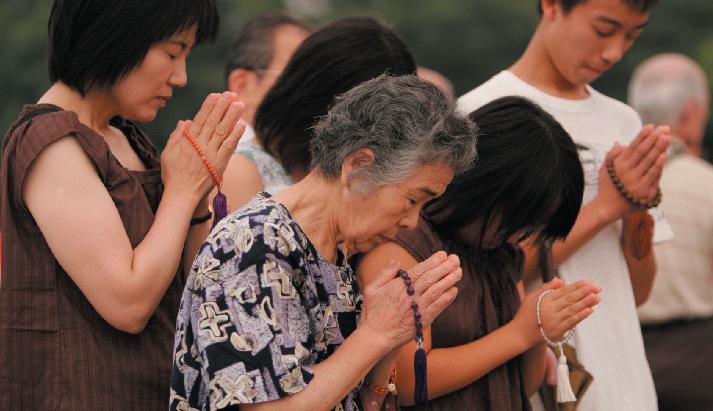
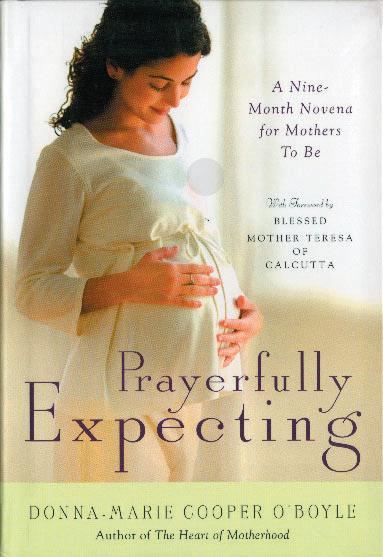
When a close friend announced her pregnancy, I soon realised just how many books there are on child development, good parenting, health and, perhaps most importantly, transforming an ordinary room into a nursery.
Having later stumbled across DonnaMarie Cooper O’Boyle’s beautifully produced book, Prayerfully Expecting, I wondered why there weren’t more resources available for those mothers-to-be wanting to spiritually prepare for the birth of their baby.
Having prepared both practically and spiritually for the sacrament of marriage, it only seems logical that some form of spiritual preparation be needed for the imminent arrival of a child.
O’Boyle, who has authored other successful books on motherhood and mothered five children of her own, obviously sees spiritual and contemplative preparation as an essential part of the pregnancy process.
Prayerfully Expecting, therefore, offers its readers an opportunity to experience the nine months of pregnancy in the form of a novena to the patron saint of mothers – St Anne, the mother of Mary. However, contemplative prayer is not the only offering to be found within the short book.
O’Boyle begins each chapter with scripture passages, followed by an exploration on the physical development of the child during that particular month of pregnancy. Each chapter also includes informative excerpts from the late Pope John Paul II’s teachings on motherhood, marriage,

ARCHBISHOP CHARLES CHAPUT of Denver, Colorado addressed the Australian Confraternity of Catholic Clergy in East Melbourne last month on what it is to be a Catholic
I’d like to start with a proposition. Here it is: To be a Christian is to believe in history.
Now, what do I mean by that? Well, I can tell you what I don’t mean. I don’t mean the history of progress, which has been the guiding faith in the West for many years. The cult of progress claims that things are getting better all the time: that, thanks to science and technology, the human condition is constantly improving; that our future is open to unlimited material achievements.
I have real problems with that sort of myth. I don’t see any evidence that it’s true. But that’s another talk for another time.
To be a Christian is to believe in history. I mean that in the way the great Catholic historian, Christopher Dawson, meant it. Dawson wrote: “Christianity, together with the religion of Israel out of which it was born, is a historical religion in a sense to which none of the other world religions can lay claim.”
Think about the Bible. All the great world religions have sacred books. The Qu’ran, the Bhagavad-Gita, the analects of Confucius. What all the sacred texts of other religions have in common is that they’re essentially wisdom literature. They’re collections of often wise and noble teachings aimed at helping believers live ethically and find the right path to peace or happiness or enlightenment.
er Philip tetrarch of…” You get the idea. To be a Christian means believing very definite things about history and about our own respective places in history.
We don’t just profess belief in the Incarnation. We say we believe that God took flesh at a precise moment in time, and in a definite place. That’s the reason for that odd detail in our creed. Think about it: We’re the only religion to remember our founder’s executioner by name every time we profess our faith. In fact, I don’t think there’s another profession of faith in any religion that mentions specific historical personages.
Pontius Pilate and Mary are mentioned by name in the creed. Why? The reference to Mary, His mother, guarantees Christ’s humanity. The reference to Pilate, who condemned him to death, guarantees his historicity. It ensures that we can never reduce the Incarnation to an abstract concept, a metaphor, a pretty idea. It ensures that we can never regard Jesus Christ as some kind of ideal archetype or mythical figure. He was truly a man and truly God. And once he had a place he called home on this earth.
Something else, too. We believe that this historical event, which happened more than 2000 years ago, represents a personal intervention by God “for us and for our salvation”. God entered history for you and me, for all humanity.
These are amazing claims. Again, all of them are unique to Christianity among the world religions. The four noble truths of Buddhism don’t have anything to do with history. The Muslim profession of faith, the shahada, testifies simply that there is no God but God and that Muhammad was his messenger. To the degree that Islam has a historical narrative, it was arguably borrowed from and built on the Jewish-Christian narrative that came before it.
Tthe family and children, to name a few.
Realising that the gift of pregnancy is as much a preparatory one as a reflective one, O’Boyle also encourages mothers-to-be to write within the pages that call for their reflections each month.
The first chapter, which explores the first month of pregnancy, even calls for expectant mothers to record the date of conception, how they told their partner the good news and shared their joy with their family members.
Blank pages throughout the book encouraging mothers to include photos of the pregnancy within the book, pages left to include the hopes both parents have for the growing child, along with space for suitable names, make Prayerfully Expecting both an informative text and a special keepsake for the new family.
Essentially, Prayerfully Expecting, which includes a foreword by Mother Teresa of Calcutta and an Apostolic Blessing from Pope John Paul II, highlights another important dimension in the formation of the family that may at times be overlooked. The book also features prayers of thanksgiving, guided reflections, prayers for the family and for the child within, as well as reflections on each of the 20 mysteries of the Rosary. Another saint for mothers, St Gerard Majella, is also called to intercede for the expectant mother with a novena printed for each month.
While perhaps most suited to new mothers, Prayerfully Expecting can be a valuable tool for any mother-to-be who wishes to explore the deeper meaning of marriage, the family and motherhood in a Catholic setting.
The Bible also aims to make people wise. But it also seeks to lead them to salvation, which is much more than enlightenment. Its starting point is totally different. The first words are: “In the beginning…” The Bible begins with a step-by-step report of the first day in the history of the world. The entire Old Testament is like that. After telling us about the first man and woman and their descendants, it proceeds to present a historical account of God’s chosen people, the children of Israel. We read about their captivity in Egypt; their deliverance and wandering to the promised land; the rise and fall of their kingdom; their exile and restoration. The biblical narratives are filled with dates and geography, even the names of foreign rulers.
hat’s my first point today. To be a Catholic is to be unique among the world’s believers. To be a Catholic means believing that you are a part of a vast historical project. And it’s not our project. It’s God’s. Being Catholic means believing that since the beginning of time God has been working out his own hidden purposes in the history of nations and in the biography of every person. He’s still unfolding his purposes today, and each of us here has a part to play in his divine plan.

The New Testament continues that history, focusing on one particular child of Israel, Jesus of Nazareth, and the community he founded, the Church. The story is told with lots of references – some direct, others subtle – to that earlier history. Jesus is portrayed as fulfilling all that God promised in the Old Testament. The Church is described as the new people of God, the final realisation of Israel’s calling to be God’s light to the nations.
Again, throughout the New Testament, we’re given precise historical markers. Here’s how the Gospel of Luke introduces the ministry of John the Baptist: “In the fifteenth year of the reign of Tiberius Caesar, when Pontius Pilate was governor of Judea, and Herod was tetrarch of Galilee and his broth-
“He chose us before the foundation of the world, to be holy. In love, he destined us for adoption to himself through Jesus Christ.” St Paul wrote that to the first Christians. He meant those words for us, too. Before the foundation of the world, God had each of us in mind. He made us out of love. He made us for a reason. To be holy, to be his sons and daughters through Jesus Christ. To help him in his plan to share his love with the whole world.
In his first homily as pope, Benedict XVI said the same thing. He said: “We are not some casual and meaningless product of evolution. Each of us is the result of a thought of God. Each of us is willed, each of us is loved, each of us is necessary.” This is a wonderful truth. Each of us is the result of an act of the creative imagination of God.
Again, no other religion makes anywhere near these kind of claims about the meaning of human life — and not just “human life” in general, but each and every human life. God willed each of us to be here. He loves us personally. But how can the Pope say we are necessary? What does God need or want us to be doing? Let’s go back to the creed for a minute.
We believe the Incarnation was a real historical event. For our salvation, Jesus came down from heaven at that point in history when Pilate was Caesar’s man in Judea.
And we believe that event changed everything. It’s the centre and meaning of history. Everything before that was but a prologue and a prelude. But what about everything after that? Well, that’s where we come in.
The creed not only tells us about the past. It also speaks of the future. We believe Jesus Christ will come again in glory to usher in a kingdom that will have no end. We anticipate that kingdom in every Eucharist, when he comes to us in bread and wine. We live in joyful hope for the coming of the “end” of history – when “time no longer shall be,” as the Book of Revelation says.
Until that day, we live in the era of the Church. If the Incarnation represents the past and the second coming represents the future, the Church is always the “present” tense of God’s plan for history and for each of our lives.
Now, there’s a lot of confusion about the Church – about what it is and what it’s for. That too, is another talk for another time. But simply put, the Church is Jesus Christ risen and alive and working in the world through me and through you. Paul said Christ is “one flesh” with the Church, like a man and woman become one flesh in marriage. We are the Church. In a mystical unity with Christ, we make up the family of God and the kingdom of God. And the Church we see on earth is united inseparably to the Church we can’t see in heaven, the communion of saints.
What’s the Church for? To continue
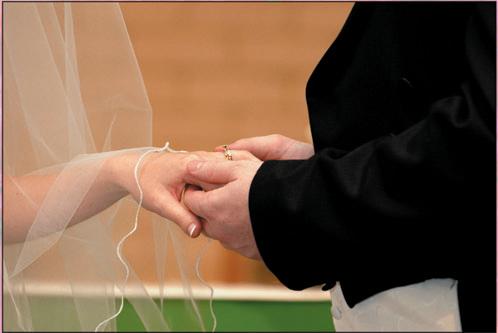
Christ’s mission on earth, the mission of his Incarnation. The mission of love. We’re here to proclaim God’s love and the good news of Jesus Christ to the ends of the earth. We’re here to make disciples of all nations. In all this, we have Christ’s promise that he will be with us until the end of the age. And he is. Through the Holy Spirit that guards the truth of what the Church teaches. Through the Eucharist and sacraments that sustain and sanctify us on our journey in this world.
A lot of people don’t “get” these connections between the divine and the human, the invisible and the visible, the spiritual and the material. And that leads to a lot of problems. We hear people all the time saying they’re upset with “the Church.” Or that “the Church” has let them down. Or that “the Church” has distorted Christ’s message and needs to be reformed.
I agree with these people. I’m not satisfied with the Church either. I want the Church to be more holy. I want the Church to purge all the corrupting influences of sin, temptation, and worldliness.
I want to the Church to be fearless in love, courageous in confronting evil, and eloquent in bearing witness to the Gospel in a culture of greed and despair.
But what those people are really complaining about is the clergy. Their defamation of “the Church” includes only the visible leadership of the Church; the Pope, the cardinals, the archbishops and bishops, the priests. That’s the Church they want to criticise, shake up and turn around.
I’m glad they hold bishops and priests, including me, to high standards. We should be leading holy lives that are an example for the Church. I only wish these people would remember that the Church includes them, too. When Christ said, “Be perfect as our Father in heaven is perfect,” he wasn’t talking
only about the clergy. When he said, “Go and preach the Gospel to all nations,” he wasn’t talking only about religious professionals. The demands of holiness and radical discipleship apply to every one of us. No excuses. No exceptions.
One of my inspirations was the French Catholic writer, Georges Bernanos. He’s most famous for a great novel that I strongly recommend to you, The Diary of a Country Priest. Bernanos was a true prophet of the last century. One of the many things he got right was his thinking about the Church and what it means to be Catholic. He knew the Church in this world was never meant to be a society of the perfect.
He wrote: “The visible Church is not only the ecclesiastical hierarchy. She is you, she is me – which means the Church is not always a pleasant thing. At times it’s even been a very unpleasant thing to have to look at the Church up close.”
Bernanos knew that if the Church was already holy and perfect, there’d be no place in it for sinners like you and me.

That brings us to my third point: to be a Catholic is to be a missionary. A missionary of God’s love. We think of missionaries as people like Matteo Ricci, the Jesuit who sailed off to evangelise China in the 16th century. But most of us are called to be missionaries in a much more ordinary and local way - in our homes, neighbourhoods, and workplaces. We’re called to be what Madeleine Delbrêl used to call “missionaries without a boat.”
Rodney Stark. What’s interesting about Stark is that he’s a self-professed atheist. Unlike a lot of atheists, he’s got no axe to grind against the Church. That’s refreshing. But he’s also not about to buy the idea that the Church was successful because it was God’s will for the world. Those are claims he can’t prove as a scientist. So he set out to study the material, historical and sociological “reasons” for Christianity’s success.
Do you know what he concluded? That the Church conquered the empire by the force of her beliefs and teachings. Because people practised what the Church preached. It was that simple. People lived out their faith. And that living out of their faith had revolutionary consequences.
The most radical Christian belief, Stark said, was the belief in God’s love and the commandment to love our neighbours as ourselves. Today, we take these beliefs for granted. They’re clichés today. But originally they marked something very new in the history of religion.
Stark puts it this way: “The simple phrase, ‘For God so loved the world…’ would have puzzled an educated pagan. And the notion that the gods care how we treat one another would have been dismissed as patently absurd.”
He wrote: “Instead of feeling at home, you would stop at the threshold of this congregation of supermen, turning your cap in your hands, like a poor beggar at the door of the Ritz.” The Church is always going to look messy if you only look at the human element. Parliament looks messy. Corporate boardrooms look messy. But remember, unlike those human institutions, the Church is also supernatural and divine. In the Church we encounter Jesus Christ, the Son of the living God. We hear his word of forgiveness in the confessional. We have communion with his body and blood in the Eucharist.
Madeleine Delbrêl is a great story. As a teenager she was a militant atheist who, with great seriousness, wrote manifestos like: “God Is Dead. Long Live Death!” But through reading and later, prayer, she came to understand not only that God is real, but also that he had a plan for her life. She returned to the Church.
In the years before World War II she went to live in an experimental communist city outside of Paris, known as Ivry-surSeine. Madeleine lived there the rest of her life, working every day shoulder-to-shoulder with avowed atheists who despised the Church. She became famous for her love and sacrifices for the poor. And she never tired
“The Church is always going to look messy if you only look at the human element. Parliament looks messy. Corporate boardrooms look messy. But remember, unlike those human inst itutions, the Church is also supernatural and divine.”
of talking to people about the source of her great love - Jesus Christ.
Never before had a religion taught that God loved people personally, and that God’s love began before the person was even born. Abortion and birth control were rampant in the Roman Empire. Christians rejected it all from the beginning. Why?
Athenagoras, a Christian layman, explained why in an open letter he addressed to the Emperor Marcus Aurelius. He said: “For we regard the very foetus in the womb as a created being, and therefore an object of God’s care.” He wrote that in the year 176. Can anyone have any doubt about what he might write to your Parliament today regarding embryonic stem cell research? Can anyone have any doubt about what you should write to them?
The whole edifice of the Church – her structures, her teachings, her devotions and sacraments – exists to bring us into contact with Jesus Christ. And through that contact, to transform us into the people that God has created us to be.
The Church exists to transform sinners – ordinary men and women like you and me – into saints. This is no ordinary human institution. In fact, there’s never been anything like the Catholic Church in the history of the world. And there won’t be.
No question about it: the Church needs to be renewed, revitalised. That’s why we’re here today.
We need to understand what Jesus Christ wants from us. What I suggest to you is this: the renewal of the Church begins inside each one of us. If the Church isn’t what we want the Church to be, it’s because you and I aren’t yet the people that Jesus Christ has called us to be.
All of this leads to my second point today. As Catholics, you have an “ecclesial” being and identity. The Church is where you belong. It’s where God has called you to be. In the Church you will find God’s will for your life.
St Maximilian Kolbe said that “Every man and woman in this world is assigned a mission by God.”
That’s true. It’s the teaching of the apostles, popes and saints. But can we really believe it? Do you really believe that God has a mission, some special task that he has given you – and only you – to carry out in this world? Do you really believe that you are necessary to God’s plan for human history?
What possible divine mission could St Maximilian have been fulfilling in giving up his life for a Jewish prisoner in the Nazi death camp at Auschwitz? Well, the same mission that God gives to each of us: to be holy. To live as children of God. To love as Jesus loved, in all of the unique circumstances of our individual lives. And by our love to spread the love of God to the ends of the earth.
Madeleine said: “Mission means doing the very work of Christ wherever we happen to be. We will not be the Church, and salvation will not reach the ends of the earth, unless we help save the people in the very situations in which we live.”
That’s your mission. To help save the people you come in contact with in your everyday lives – your spouses and children, your co-workers, neighbours and friends.
We’re not living in an atheist environment like Madeleine Delbrêl. We’re living in an environment that’s much worse. In fact, in your society and in mine, and throughout Western Europe, we hear talk that this is a “post-Christian moment” in history. That’s a polite, academic way of saying that most people go about their days as if the Incarnation never happened.
In his last book, Memory and Identity, which he finished shortly before his death in 2005, Pope John Paul II warned about this. He wrote: “Again and again we encounter the signs of an alternative civilisation to that built on Christ as ‘cornerstone’ – a civilisation which, even if not explicitly atheist… is built upon the principle of thinking and acting as if God did not exist.”
That’s what we’re up against. An alternative civilization. The most powerful nations on earth are organised and operating as if they have no need for God. “Practical atheism” has become a world religion.
So what are you going to do? How are we going to convert this world? To get to my last point, I want to suggest an answer from history.
Did you ever wonder how the early Church did it? I mean, how did a handful of men and women, disciples of an obscure man executed as a criminal, wind up changing the world – conquering an empire and founding a whole new civilisation on the cornerstone of that executed man’s life and teachings? In just a few centuries, without firing a single shot?
I was talking to priests earlier about a little book called The Rise of Christianity. It’s by one of the world’s leading social scientists,
Before Christianity came on the scene, no religion had ever taught that God could be found in our neighbour. The world ignored the poor, the hungry, the stranger and the imprisoned. It still does. And yet Jesus said that we find God in our love for these least brethren of ours.
Stark shows how the early Christians’ love had concrete consequences that enabled the faith to spread and grow. And I want to leave you today with my last point: that divine love remains the most revolutionary idea in the world today.
Dorothy Day, the founder of the Catholic Worker movement back in the States, said God became man to show men and women a new way to be human. “He came to serve,” she said, “to show the new Way, the way of the powerless. In the face of Empire, the Way of Love.”
We are not powerless in the face of today’s unbelieving and alternative civilisation. We can turn this world upside down if only we’re willing to love – the kind of Christian love that is vastly more than just a warm feeling; the kind of love that breaks us open into something entirely new; the kind of love that bears fruit in our personal zeal, courage, justice, mercy and apostolic action.
So I leave you with this: Love well. Put your belief into practice. Do everything for the love of God, even the little things you have to do each day. Love those who don’t love you. Love expecting nothing in return. Love and you will find Jesus. Love and those you love will find Jesus, too. Love, and through your actions, God will change this world.
One of my favourite stories about Mother Teresa is about the time she found a woman on the streets who was covered in sores that were dirty and infected and crawling with insects. Mother Teresa took her in and began cleaning her up. All the while, the woman was screaming at her, showering her with curses and insults.
At one point the woman screamed: “Why are you doing this? People don’t do things like this. Who taught you?” Mother Teresa said, “My God taught me.” The woman quieted down and asked who her god was. Mother Teresa responded: “You know my God. My God is called love.”
My friends, our God is called love. And our God is calling you to follow Him in remaking the face of the world.
The Eternal Word Television Network
On Access 31 every Sunday 1pm - 2pm Coming Programs
August
12 What makes a youth group work? Youth for Truth, winners of the Rockhouse Video Awards Fr Dave Kime and members of the group, with Fr Francis Mary Stone [Life on the Rock]
Includes a clip of Archbishop Hickey speaking about World Youth Day 2008
19: China’s rise to power and human rights abuses / Steven Mosher and Edward Timperlake with Raymond Arroyo [The World Over] 26: Special 300th presentation on Access 31 by the RCTA : 2001 to 2007 Features EWTN Family Celebration in Birmingham, Alabama, July ‘07 Jesus of Nazareth : understanding Pope Benedict’s latest book / Fr Benedict Groeschel [Sunday Night Live]
Win an installation to receive EWTN free to air, 24 hrs a day, 7 days a week! Our grateful thanks to generous supporters who have helped us remain on air for six and a half years. We now have 80 members of the 300 Club, which enables us to renew the contract for the remainder of this year. To continue thereafter, however, we need further support. If the goal of 300 supporters can be reached, one lucky member of the club will have an opportunity to win a free installation.
If you can afford $1 a week, please send a cheque or money order for $50 (annual), payable to the Rosary Christian Tutorial Association to P.O. Box 1270 Booragoon 6954, and you will be included in the draw. Enquiries: 9330-2467.
Rosary Christian Tutorial Association P.O. Box 1270, Booragoon 6954, Enquiries: 9330 2467
During August all new advertisers will receive a 10% discount on booked advertising. Call Terence on 9227 7080 for a price list.
Sunday August 12
FATIMA DEVOTIONS
The World Apostolate of Fatima Aust Inc invites you to attend Fatima Devotions to mark the 90th Anniversary of Fatima, in the Holy Rosary Church, Thomas Street, Nedlands at 3pm. Confession and Enrolment in Brown Scapular available. All are very welcome. Enq: 9339 2614.
Wednesday August 15
LATIN MASS IN THE CITY
Feast of the Assumption of the Blessed Virgin. St John’s Pro-cathedral, Victoria Ave, Perth. Low Masses at 7.30am, 10am, 12.10pm, and Sung Mass at 6.30pm. Holy Hour and Benediction 8.45am9.45am. Please note that the Feast of the Assumption is a Holy Day of Obligation. All Welcome. Enq: Fr Michael Rowe 9444 9604.
Friday August 17
AN EVENING OF PRAYER WITH OUR LADY QUEEN OF PEACE
At St Simon Peter Catholic Church, Prendiville Ave Ocean Reef. Commencing at 7.30pm with a Holy Hour (Rosary & Meditation), followed by the celebration of Holy Mass. Celebrant- Fr Tiziano Bogoni.
Sunday August 19
THE ASSUMPTION OF THE BLESSED VIRGIN
Will be celebrated at the Shrine of Virgin of the Revelation, 36 Chittering Rd, Bullsbrook 2pm. There will be a Rosary Procession before the Pilgrim Mass followed by Benediction of the Blessed Sacrament. Confessions are available at 1.30pm each Sunday before Mass. All are most welcome. Enq: 9447 3292.
Sunday August 19
TAIZE MEDITATIVE PRAYER
7pm-8pm Sisters of St. Joseph Chapel, 16 York St, South Perth. Come and join in the Taize Prayer this month as we remember Brother Roger’s anniversary of his death in Taize. Come and bring your friends and pray in a candlelit chapel in stillness and peace. Bring along a small torch and a friend. Enq: Sister Maree Riddler 0414 683 926.
Sunday August 19
REFLECTIONS ON THE TEACHINGS OF MEISTER ECKHART
The Annual St Dominic Commemorative Lecture will be presented by Fr Tom Cassidy OP at 3pm in the Parish Hall of Our Lady of the Rosary Parish, Angelico St, Woodlands. Entry will be by gold coin donation. Fr Cassidy will discuss Eckhart’s teaching on how we become one with God.
Tuesday August 21 – Sunday December 2
SET MY PEOPLE ON FIRE
7.45 pm St Anthony’s Parish, 96 Innamincka Rd, Greenmount. 15 weekly Bible sessions for building a faith building community called “Set My People on Fire.” Presented by Perth Catholic organisation Flame Ministries International, featuring international speakers and the Flame Music Ministry. Each Tuesday evening with a Friday to Sunday weekend every 5th week. Free admission - Information: 9382 3668 - Email: smpof@flameministries.org - Program: flameministries.org/smpof.html.
Wednesday August 29
PREGNANCY ASSISTANCE INFORMATION DAY
Are you Pro-Life? Compassionate? A Good Listener?
An Information Day will be held on Wed, 29th Aug from 9.30am-2.30pm for those who would like to know more about becoming a pregnancy support volunteer. To register, phone Pregnancy Assistance on 9328 2926.
Thursday August 30
THE 24TH ANNUAL NOVENA TO OUR LADY OF GOOD HEALTH, VAILANKANNI
Starts 7pm and ends on September 8, the Nativity of the Blessed Virgin Mary at the Holy Trinity Church, Embleton. Social get-together follows on the first and last day of the Novena. Please bring a plate. Thank you. Enq; Mons P McCrann 9271 5528 or George Jacob 9272 1379.
Saturday September 1
DAY WITH MARY
9am – 5pm Our Lady Queen of Peace Church, cnr Harfoot & Milroy Streets, Willagee. A video on Fatima will be shown at 9am followed by a day of prayer and instruction based upon the messages of Fatima. Includes Sacrament of Penance, Holy Mass, Eucharistic Adoration, Sermons, Rosaries, Procession of the Blessed Sacrament and Stations of the Cross. Please BYO lunch. Enq: Franciscan Sisters of the Immaculate 9250 8286.
Sunday September 2
DIVINE MERCY
An afternoon with Jesus and Mary will be held at St Joachim’s Church on the corner of Shepperton and Harper Street in Victoria Park 1.30pm. Program: Holy Rosary and Reconciliation. Sermon: Our Lady of Perpetual Help with Fr Hugh Thomas CSSR. Followed by Divine Mercy prayers and Benediction. Afterwards refreshments in the Parish Hall, followed by a video with Mother Angelica entitled, ‘We do not see with our hearts’. Enq: John 9457 7771 or Linda 9275 6608.
Thursday - Sunday September 6 – 10
FEAST OF OUR LADY MARIA SANTISSIMA DEL TINDARI
Basilica Saint Patrick, Adelaide Street Fremantle. The Feast of Maria SS.Del Tindari will be held during the second week of September. It begins with Triduum which will be celebrated by Fr Sergio Natoli O.M.I. from Italy, beginning Thursday September 6 to Saturday 8 at 7.30pm. The concelebrated Mass will be on Sunday September 10 at 9.45am. The Principal Celebrant will be Bishop Peter Quinn. The procession through the streets of Fremantle will commence from the Basilica at 2pm. Enq: Joe Franchina 0404 801 138 or 9335 1185.
Friday September 7
APPLICATIONS CLOSE FOR CACW FELLOWSHIPS
The Council for Australian Catholic Women (CACW) was established by the Australian Catholic Bishops‚ Conference in 2000. CACW seeks to promote the participation of women in the Catholic Church in Australia. CACW is pleased to announce that the 2008 application package for the Young Catholic Women’s‚ Interfaith Fellowship is now available. The package can be downloaded from: www.cacw. catholic.org.au For further information regarding the CACW or the Fellowship, please contact: michelleww@iinet.net.au or 9345 2555.
Thursday to Sunday September 13-16
CURSILLO FOR WOMEN
7pm to be held at ‘Penola by the Sea’, 27 Penguin Rd, Safety Bay. For application forms and/or further information please phone Jeanie Hoff on 95313842 or 0421 725 508.
Friday to Sunday September 14-16
RETREAT PRAYER IN THE FRANCISCAN TRADITION
All those interested in learning more about St Francis and prayer in the Franciscan tradition are welcome to attend. The retreat will be held at the Redemptorist Retreat House. The retreat will be given by Deacon Dick Scallan SFO. For information and bookings please contact Mary on 9377 7925 by August 31.
Saturday September 22
ST PADRE PIO PILGRIMAGE TO TOODYAY
8am-5.30pm Solemn Mass, Rosary, Divine Mercy, Adoration, Benediction, Eucharistic Procession to celebrate St Pio’s Feast Day. BYO Lunch. Tea & Coffee provided. Buses departing Vic Park, Mirrabooka, Girrawheen contact Nita 9367 1366. Leederville, Morley, Midland contact Des 6278 1540.
Sunday September 23
40TH ANNIVERSARY OUR LADY OF LOURDES
Past parishioners and friends of Our Lady of Lourdes, Nollamara are warmly invited to attend the celebration of the 40th Anniversary of our Church and the Blessing of its extensions. Celebrations will begin with a concelebrated Mass at 2.30pm followed by light refreshments. For further enquiries please contact the Parish Centre of 9345 5541.
Sunday September 23
ST JOSEPH’S CHURCH TRAYNING CELEBRATES 81 YEARS 10.30am St Joseph’s Trayning will celebrate 81 years. Mass will be followed by a bring and share lunch. Contacts: Sandra Waters 9683 2048 email: rosalind@bbsat.com.au Val Enriquez 9683 1191, Fr Chien 9685 2399.
October 11, 12 and 13
TRIDUUM TO CELEBRATE 90TH ANNIVERSARY OF THE FATIMA APPARITIONS
Holy Trinity Church, Embleton. 7pm Holy Mass followed by Rosary, Litany, Marian Prayer and Benediction of the Most Blessed Sacrament on Thursday and Friday respectively. Saturday 13th, Vigil Mass at 6pm followed by devotions as above, concluding with candle light procession and fellowship at the hall to thank and farewell Franciscan Friar of the Immaculate the Preacher Fr John Josep. Please bring a plate. Enq: Mons McCrann 9271 5528 or Judy David 9275 5827 or George Jacob 9272 1379.
Saturday October 20
ST JOSEPH’S YOUTH GROUP, QUEENS PARK, 30 YEAR REUNION
All past members of the St Joseph’s Youth Group are invited to attend a reunion. If you would like to attend or know of someone who was a member, please contact Wayne McGoorty on 9351 9563 or email dmcgoorty@upnaway.com or Carolyn Pen on 0411 133 465 or email penpc@optusnet.com.au for further details of this event.
Friday November 17
INTERCESSION FOR WORLD YOUTH DAY 2008
All night prayer vigil. St Bernadette’s, Jugan St, Glendalough. 8pm-6am Begins with Mass ends with Breakfast. All are welcome to come to pray and intercede for World Youth Day 2008. Come for an hour, stay the night.
First Sunday of each month
DEVOTIONS IN HONOUR OF THE DIVINE MERCY
The Santa Clara Parish community welcomes anyone from surrounding parishes and beyond to Santa Clara Church, cnr of Coolgardie and Pollack
Sts, Bentley. The afternoon commences with the 3 o’clock prayers, followed by the Divine Mercy Chaplet, reflection and concludes with Benediction. Last Sunday each month
HEALING FIRE BURNING LOVE
Charismatic Mass celebrated at the Holy Spirit Chapel, 85 Boas Avenue, Joondalup at 5.45pm.
Every Saturday
PERPETUAL HELP DEVOTIONS
4.30pm. The half hour perpetual novena devotions to the Mother of Perpetual Help continue each Saturday at the Redemptorist Monastery Church, 190 Vincent St, in North Perth. Reconciliation available before and after the devotions. All welcome.
Every Sunday
BULLSBROOK SHRINE
Sunday pilgrim Mass is celebrated with Holy Rosary and Benediction of the Blessed Sacrament 2pm at the Shrine of the Virgin of the Revelation, 36 Chittering Road, Bullsbrook. Reconciliation is available in Italian and English before every celebration. Enq: 9447 3292.
Every Sunday RADIO GATE OF HEAVEN
7.30-9pm. 107.9FM. 1. Getting God’s Help w/Fr Benedict Groeschel - “The Gift of Fear of The Lord” Episode #8. Life on the rock w/Fr Francis Mary“Activists & Participants in the Walk for Life on the West Coast” Episode #156.
Every Sunday LATIN MASS
The Latin Mass according to the 1962 missal is offered every Sunday at Our Lady of Fatima, 10 Foss St, Palmyra at noon. All welcome.
Every fourth Monday
SCRIPTURAL PRAYER PROGRAM
7.30-9pm. Venue: St Mary’s Parish Centre, 40 Franklin St, Leederville. The Council for Australian Catholic Women (CACW) is offering a scriptural prayer program developed in the Jesuit tradition. This form of prayer can lead to more reflective living, greater spiritual depths and promotes lay spiritual leadership in the Church. Led by Kathleen Brennan (ibvm). Enq: Michelle Wood 9345 2555.
Every Tuesday WEEKLY PRAYER WITH MARY’S COMPANION WAYFARERS OF JESUS THE WAY
7pm, St Mary’s Cathedral Parish Centre, 450 Hay St, Perth. Personal healing in prayer, Rosary, scripture, meditation, praise in song, friendship and refreshments. Appreciate the heritage of the faith united with others asking Jesus and Mary to overcome burdens in life. Prayer is powerful. Come, join us!!
Every Wednesday
HOLY HOUR, BENEDICTION
Holy Hour 4.30 – 5.30pm St Thomas Church, 2 College Road, Claremont each Wednesday, followed by Evening prayer and Benediction. Personal prayer before the Blessed Sacrament is Adoration of Jesus’ gift of Himself, of His love for you, for your loved ones and for our world. Come and thank Him.
Every second Wednesday
FORTNIGHTLY BIBLE REFLECTIONS
Workers in the Garden of the Holy Family are conducting Bible Reflections at St Mary’s Church, Parish Centre, 40 Franklin Street, Leederville. Commencing 7pm with Rosary, refreshments provided afterward. Dates: August 22, September 5, 19, October 3, 17, 31, November 14, 28, December 5. Enq: 9201 0337.
EUCHARISTIC ADORATION
Holy Trinity Church, 8 Burnett Street, Embleton. Every Monday to Thursday after the 8.30am Mass till 10am. Every Thursday night from 11pm to midnight. Every Friday Eucharistic Adoration after the 8.30 Mass til 6pm. Enquiries: Mons P McCrann 9271 5528 or George Jacob 9272 1379.
Every First Friday
HOLY HOUR FOR VOCATIONS TO THE PRIESTHOOD AND THE RELIGIOUS LIFE
At Little Sisters of the Poor Chapel, 2 Rawlins Street, Glendalough. 7pm Mass with Celebrant Fr Albert Saminedi. 7.30pm Holy Hour Adoration with Fr. Don Kettle. Refreshments to follow in the Hall. All welcome.
Every 1st and 3rd Friday of the month
CATHOLIC FAITH RENEWAL
Every 1st Friday - Praise and Worship evening held at St John and Paul’s Church, Pinetree Gully Rd Willetton at 7.30pm. Every 3rd Friday Catholic Faith Education by Fr Greg Donovan, LJ Goody Bioethics Centre, 39 Jugan Street, Glendalough at 7.30pm. All are welcome. Enq: Rita 9272 1765 or Rose 0403 300 720.
Second Friday of each Month GENERAL PRAYER ASSEMBLY
The Couples for Christ and its Family Ministries welcome all members who now reside or are visiting Perth to join the community in our monthly general prayer assembly 7.30pm, St Joachim Parish Hall, Shepperton Road, Victoria Park. Enquiries: Tony & Dolly Haber (08) 9440 4540.
Every Fourth Sunday SECULAR FRANCISCAN ORDER
The Perth Fraternity of the Secular Franciscan Order assembles every fourth Sunday at 2.30pm in the Chapel of RSL Care, 51 Alexander Dr, Menora. Enquiries John 9385 5649.
Every Fourth Sunday WATCH AND PRAY
A Holy Hour is held at Infant Jesus Parish, Morley from 2-3pm with exposition of the Blessed Sacrament. The hour consists of some prayers and Scripture but mostly the hour is silent prayer for Vocations. All are welcome. Please encourage others to come and pray. Prayer - it works! Enq: 9276 8500.
Every Monday
WEIGHT MANAGEMENT FOR THOSE WITH MENTAL ILLNESS
The Emmanuel Centre are offering to help people who gain weight because they are using medication for their mental illness. The group helps participants to manage their weight safely and healthily. Mind-Body-Life meets at the Emmanuel Centre on Mondays from 12.30-2.30pm. Free. The group starts with a weigh-in, then a talk on nutrition and healthy eating tips, goal setting and then half an hour of exercise. Enq: Amanda - Emmanuel Centre, 9328 8113.
BOOK DONATIONS
We still seek donations of books and thank you and bless you for your kind, generous contributions of Bibles, Missals and Catholic books on the faith. We are now able to offer a selection of second-hand, pre-loved books to the community in return for a small donation. Enq: 9293 3092.
WINDOW FUND DONATIONS WELCOME
St Catherine’s Catholic Church, Gin Gin Parishioners are currently fundraising to restore the church windows. The cost of each window is $1500. If anyone is able to assist our fundraising efforts please telephone Fr Paul 9571 1839.
CLUB AMICI
Club Amici aims to build community amongst Catholic singles, couples and families (aged 25 and up) by organising social events. If you would like a copy of our new calendar of events or would like to be on our mailout list please contact Therese 9437 5349 or email clubamiciwa@yahoo.com.au.
CALL FOR VOLUNTEERS
Ignatian Volunteers Australia calls for part-time volunteers to respond to the needs of people in the community who live in marginalised circumstances. At the heart of this program is a reflective process based on Gospel values, which supports the volunteers in their work. To learn more: www.volunteers.jesuit.org.au Contact Kevin Wringe, Perth Coordinator (08) 9316 3469 kwringe@iinet.net.au .
REUNION
John and Marie Acland are planning to hold a reunion later this year of all past and present members of the Apostles of Christ Prayer Group Willetton and all other persons who took part in their Meetings, Fellowship Nights, Life in the Spirit, and supplementary Seminars, the Alpha Course and other group activities. Further details will be advised when full numbers are known. Enq: Marie Acland. Tel/fax 9537-3390. Email jmacland@bigpond.com or Dianne McLeod 93320829. Email danielmcleod@bigpond.com
Panorama entries must be in by 5pm Monday. Contributions may be faxed to 9227 7087, emailed to administration@therecord.com.au or mailed to PO Box 75, Leederville, WA 6902. Submissions over 55 words will be edited or excluded. Inclusion is limited to 4 weeks. Events charging over $10 constitute a classified event, and will be charged accordingly.The Record reserves the right to decline or modify any advertisment. Please do not re-submit Panoramas once they are in print.
■ DENMARK
Holiday House 3bdr x 2 bath, sleeps up to 8. BOOK NOW. Ph: Maria 0412 083 377.
■ FAMILY GROUP ACCOMMODATION Visit http://www.beachhouseperth.com Call 0400 292 100
■ BLINDS SPECIALIST
Call AARON for FREE quotes 0402 979 889.
■ BRICK REPOINTING Phone Nigel 9242 2952.
■ PERROTT PAINTING PTY LTD
For all your residential, commercial painting requirements. Phone Tom Perrott 9444 1200.
■ PICASSO PAINTING Top service. Phone 0419 915 836, fax 9345 0505.
■ CARETAKER WANTED
Church Caretaker Couple (or single man) for St Anne’s, Bindoon suit pensioners, free accomm. Ph: 9571 1839 or 0427 085 093.
■ BUSINESS OPPORTUNITY
Extra income from your own home-based business. Work part-time without disturbing what you are doing now. Call: 02 8230 0290 or 0412 518318 www.dreamlife1.com
■ VOLUNTEERS WANTED
The Christian Democratic Party (CDP) is looking for volunteers who support Christian values and want to improve Australia to work at polling booths at the coming Federal election. If you can help, please contact Paul Connelly (CDP’s Perth Candidate) on 0414 247 286 or pmjconnelly@hotmail.com
Authorised by Gerard Goiran 4/294 Gt Eastern Hwy Midland
■ BUSINESS SUPPORT WANTED
The Christian Democratic Party (CDP) is looking for businesses in all areas that support Christian values and want to improve Australia to place CDP Candidate campaign posters (various sizes available) in the shop windows of their businesses for the coming Federal Election. If you can help, please contact Paul Connelly (CDP’s Perth Candidate) on 0414 247 286 or pmjconnelly@hotmail.com.
Authorised by Gerard Goiran 4/294 Gt Eastern Hwy Midland
■ CHRISTIAN BROTHERS REUNION
Christian Brothers “Old Boys” Reunion. All past students, staff and friends of all Christian Brothers Schools are invited to a unique reunion to celebrate the contribution by Christian Brothers to Education in Western Australia.
Date August 26th
Time: 4.30pm
Venue: Burswood Theatre
Cost: $25
Drinks and canapés will be served in the Grand Ballroom from 6.00pm. All seats must be registered and ticketed. Children free, however must be ticketed. For further information please contact: Maureen Colgan on 9317 2753 (all hours)
Michael Perrott: 9474 1799 (business hours) or Download a Registration Form on: www.edmundricecelebration.com
■ BECOMING ONE WITH GOD Eckhart, Annual St. Dominic Commemorative Lecture. A presentation by Fr Tom Cassidy OP on the teaching of this 14th century Dominican Mystic and how we become “one with GOD”. Sunday 19th August, 3pm at the Parish hall of Our Lady of the Rosary Church, Angelico St Woodlands. Gold coin admission. For further information Ph: Jeff or Joan Trew 94463655. Presentation sponsored by Dominican Laity, Doubleview.
■ RETREAT IN DAILY LIFE 1ST 22ND SEPTEMBER 2007.
A non-residential, one to one, retreat suited for those who need to continue their daily routine while seeking to deepen their relationship with God. The retreat is conducted over 3 weeks, meeting with a Director twice weekly. For more information contact Sr Una O’Loughlin (92051623, email unaol2002@yahoo.com.au) or Maureen O’Toole (9279 9219, email beaudoire@iprimus.com.au).
■ ALL AREAS Mike Murphy 0416 226 434.
■ ACHES, PAINS, STRESS??? Indian mature male masseur offers Reflex Relax Massage at $30 for 60mins. Phone Jai 0438 520 993.
■ DEMENTIA REMISSION
Do you, or your loved one, suffer Dementia. Get into Dementia Remission like me! http://www. wgrey.com.au/dm/index.htm or (02) 9971 8093.
■ HEALTH AND WELLNESS
A FREE Sample Pack of wellness, weightloss, and energy products. DVD and product brochure also enclosed. (Only while stocks last - hurry!!) Call 02 8230 0290 or 0412 518 318.
■ MIGRATE TO AUSTRALIA
For guidance and visa processing, Skilled or Family Visas and Study visas. Call Michael Ring or Ajay Trehan Registered Migration Agent – (MARN # 0212024). Phone: (02) 8230 0290 or 0412 518 318 for a no-obligation assessment, please call or email: michael.ring@bigpond.com
■ GROOM WANTED
Loving, Smart, Fair, PG in Commerce, 31yo, Anglo Indian Bride living in India, seeks home-loving Catholic groom. Please phone father on: 011-919396 286 495.
■ APARCIDA’S EMPORIUM Florist, retailer of Catholic Products (all occasions), giftware, wedding planner, as seen on Access 31. Open Tues-Sun, Shop 11, Cinema Arcade Perth. 9439 6539 or 9525 4679.
■ CATHOLICS CORNER
Retailer of Catholic products specialising in gifts, cards and apparel for baptism, communion and confirmation. Ph: 9456 1777. Shop 12, 64-66 Bannister Road, Canning Vale. Open Mon-Sat.
■ RICH HARVEST YOUR CHRISTIAN SHOP Looking for Bibles, CDs, books, cards, gifts, statues, baptism/communion apparel, religious vestments, etc? Visit us at 39 Hulme Court (off McCoy St), Myaree, 9329 9889 (after 10.30am, Mon-Sat) We are here to serve.
■ BOOKS
Books 2nd hand quality Catholic reading at reasonable prices. Also Bibles and Missals. Ph: (08) 9293 3092.
■ ARTHUR KIRKWOOD In loving memory of my dear Father, who died on August 11, 1991. On this sad anniversary and always you are in my heart and prayers, O my Pappa! May God be with ever with you, and
be submitted by fax, email or post no later than 12pm Tuesday.

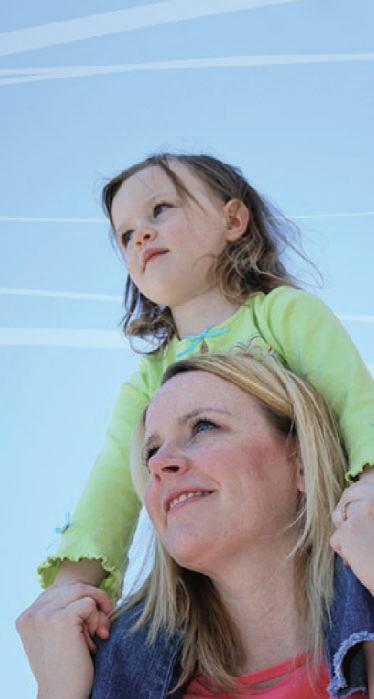
A Federal election will be called in the coming months, and the Australian Catholic Bishops offer this statement in order to focus on some key issues of vital concern to the entire Australian community.
In making this contribution, we draw upon a rich religious tradition and upon the Church’s long experience as a major provider of healthcare, education and social services in Australia. We encourage Catholics to look beyond their own individual needs and apply a different test at the ballot box – the test of the common good.
Catholic tradition holds that the common good is underpinned by the promotion and protection of human dignity. Implicit in seeking the common good is the desire to serve the poor, the marginalised, the sick and the forgotten in our society.
At a time when some argue that religious faith should be removed from politics altogether, we urge Catholics to take their democratic freedoms seriously and become involved in the political process. For some, this will also mean making informed ethical choices at the ballot box. For others, it might mean standing for election.
We acknowledge and encourage the many Catholic people who are already engaged in political life at various levels.
the catholic church is a major provider of education in australia and has been since the earliest days of european settlement. The diversity of the Australian system of co-extensive schooling – public, Catholic and private – is a great strength and should be supported in every way.
Funding policies should assist parents in choosing the education that they want for their children, reflecting their own circumstances, values and beliefs. Funding models must be fair, open and transparent, reflecting accurately contributions from the Commonwealth, states, and parent and private contributions. There should be no barrier to education because of an incapacity to pay.
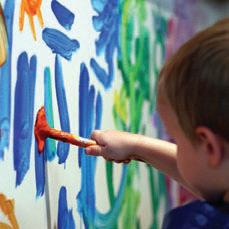
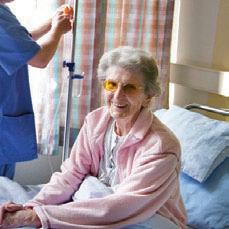
australia has a fine health system but it is under great strain. The Catholic Church insists that every person has the right to essential health care. Catholic Health Australia has been warning of an increasing cost burden to families and to patients who are heavily reliant on health services. Significant reform is needed to ensure that households maintain their capacity to obtain basic health care. Without such reform, involving both the Commonwealth and states, Medicare will not be able to keep pace with the steady increase in user charges and fees. Aged care and dental health must also receive adequate Commonwealth funding to ensure appropriate support for the frail and the sick.
Mental health is an area of particular need. Not infrequently, mental health is related to the drug culture and its consequences. The entire community needs to be aware of the problem, its scope and complexity; the young need to be educated in this area; and government needs to fund mental health care appropriately.
despite recent life-giving rains, australia remains in the grip of drought. We stand in solidarity with those suffering the effects of the drought and, in our churches around the nation, we will continue to pray for regular, sustaining rain. More than ever we need cooperation at all levels of government to implement policies which will safeguard our water resources and distribute them in the fairest possible way. Support for drought-stricken communities must also be a priority, both in practical help and in providing professional support and counselling for those who need it. Catholic social service agencies are involved in this work and we know how much it is needed from our own contact with the people in the drought-affected communities we serve. Australia’s future prosperity is closely linked with how well we care for our environment. The effects of global warming, land degradation, poor land use practices and exploitation of the natural environment all require urgent and ongoing attention.

respect for life and the fostering of the inherent dignity of the person underpins what it is to be human. All human life is to be respected, particularly the most vulnerable, including the unborn, the sick and elderly, people with disability, and communities ravaged by poverty, abuse, famine or war. In Australia, we welcome the growing consensus that the level of abortion is deeply disturbing. We continue to commit ourselves to working with all sides of politics to offer practical support and alternatives to women facing an unexpected pregnancy. Respect for human life also requires constant vigilance to ensure that euthanasia and assisted suicide are never legalised in Australia. These acts, which are presented as acts of mercy, are in fact an abandonment of those who need our care and protection most. Recognising the incidence of suicide in the Australian community, we encourage every initiative, especially in the field of mental health, to alleviate the pressures that can lead people to take their own lives.

The deepest questions are raised by the creation and deliberate destruction of human embryos for stem cell research. The Catholic Church is not opposed to stem cell research. On the contrary, we strongly support research based on adult stem cells, as well as those which are derived from umbilical cord blood. The Church supports ethical stem cell research through its research institutes, healthcare services, teaching hospitals and health professionals.
families are the basic cell of society. At a time when family life is subject to unprecedented pressure, families must be supported in every possible way. There must be legal recognition of the unique nature of marriage between a man and a woman, and proper protection for the rights of children. Tax arrangements and social service support nets should be aimed at strengthening families and reducing the pressures on them.
Industrial laws must also support family life by ensuring a fair wage fixing system, an adequate minimum wage, proper protections for workers’ conditions and fair compensation for the working of unsociable and un-family friendly hours. The proper balance between the rights of the employer and the rights of the employee always needs to be maintained. We call for a ‘fair go’ for all and an industrial relations system which supports the nation’s greatest asset – its families.
a sustained effort from all australians and all political parties is needed to achieve lasting dignity and justice for our indigenous peoples. Recent government initiatives in this area are welcome and necessary, but much more needs to be done. This must involve adequate indigenous representation in the process of government so that Australia’s first peoples may be heard and their hopes and aspirations pursued as a national priority.
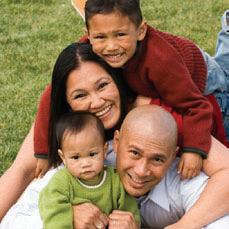
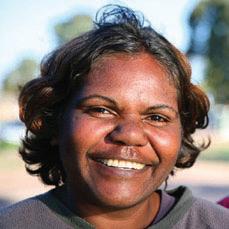
Appalling standards of housing and health, alarming levels of imprisonment and great educational disadvantage and poverty are some key indicators of the problems which weigh heavily upon indigenous peoples throughout the country. All Australians are now keenly aware that when the common good is being considered at the ballot box this election we cannot fail to consider the needs of our Indigenous brothers and sisters.
the movement of people across the globe is at unprecedented levels and will only continue. Many people migrate because they are seeking to find a better life in a new country and Australia has benefited from successive waves of immigration. However, there are also millions of people who are forced to flee their homeland for fear of persecution or through displacement because of war or famine. We believe that all asylum seekers, regardless of how they arrive in Australia, should have their claim processed in Australia, according to international convention. Claims should be processed as speedily as possible, ensuring that people do not spend long periods in detention. People who are found to be refugees should receive permanent visas which allow them to access government services and employment, giving them the security they need to build a new life in Australia. Church bodies are engaged in working with migrants and refugees, both in Australia and overseas. Through these bodies, we are committed to serving those in need and also seeking to address the causes of poverty and dislocation.
around the world, and even in our own region, peace can seem an impossible task. We can feel helpless in the face of such violence and seemingly intractable political problems, but our faith tells us that it is not God’s way to oppose violence with greater violence. We are grateful for our defence service personnel. We pray for their safety. We pray as well for a speedy end to all conflicts in which our forces are involved. We support efforts to build a culture of peace by promoting overseas aid policies which provide access to proper nourishment, health, housing and education.
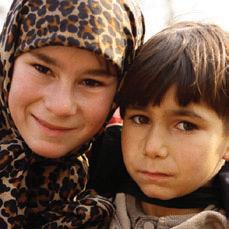

Our thoughts and prayers are with political leaders as they prepare for the election and our hope is that what we offer here will help not only Catholics, but all Australians to make a choice which serves the good of the whole nation.
